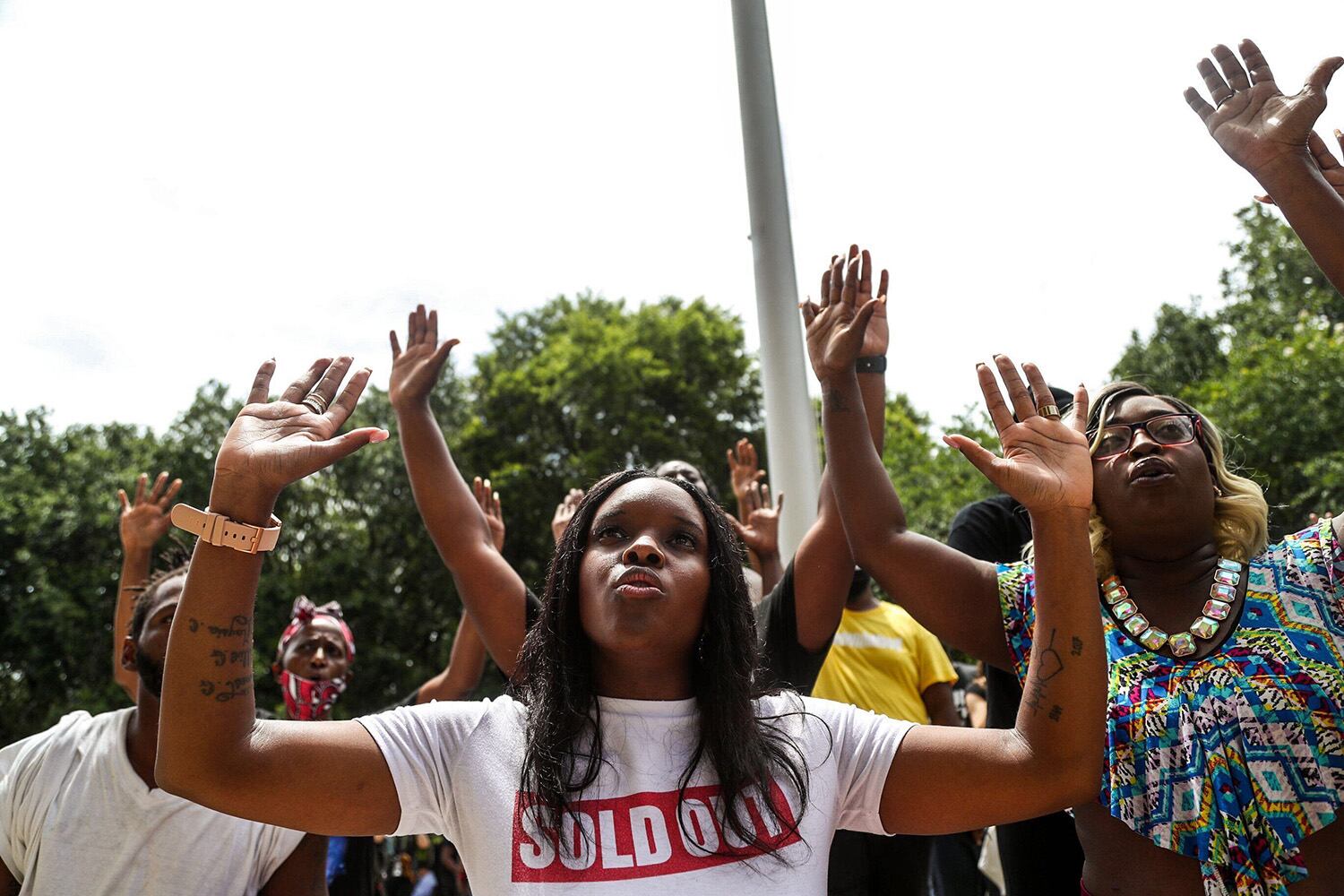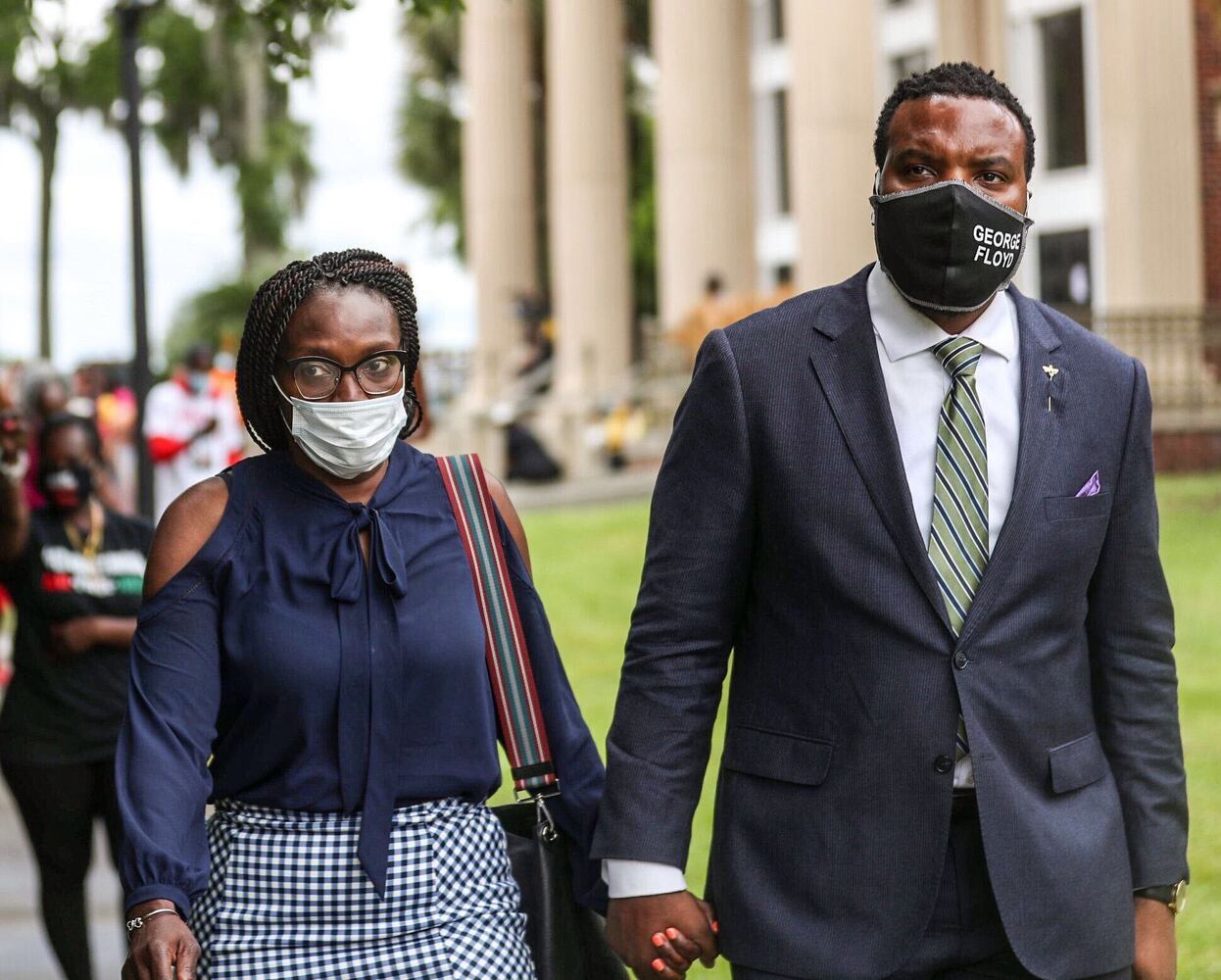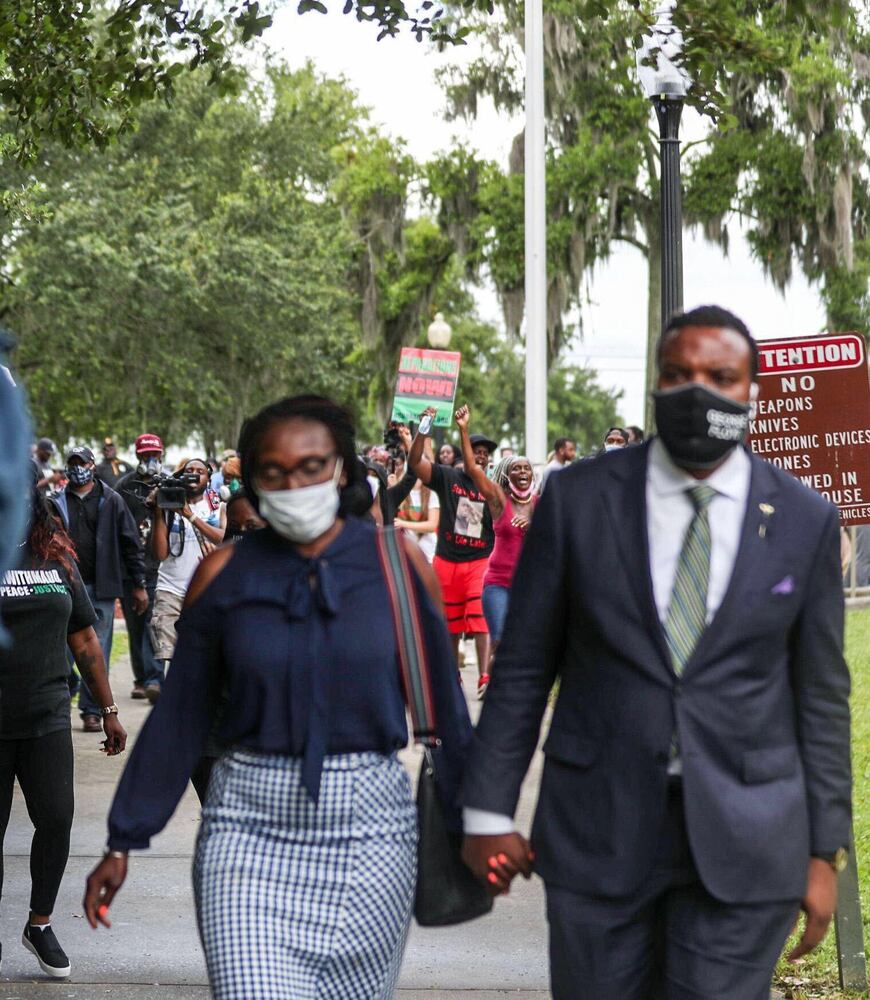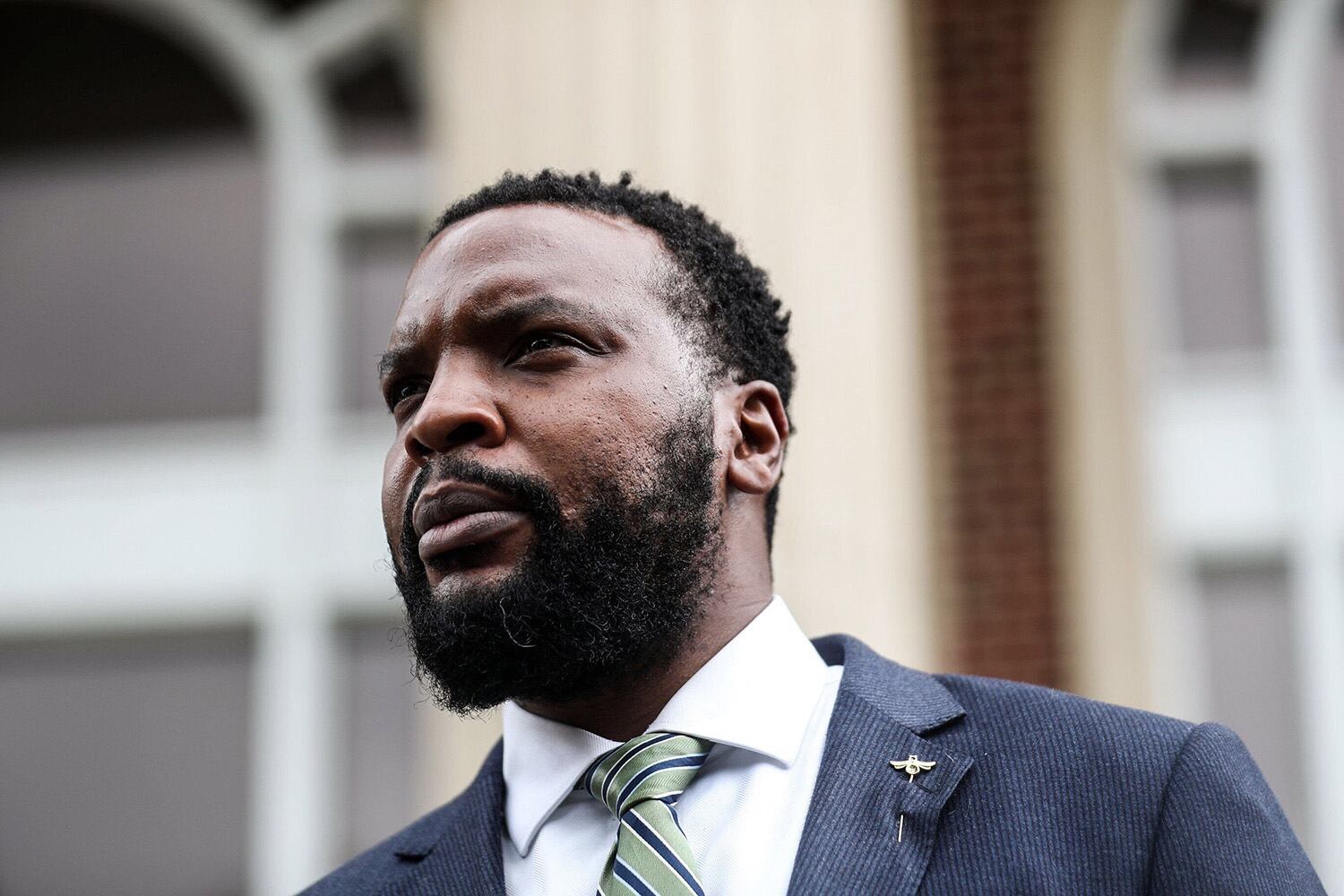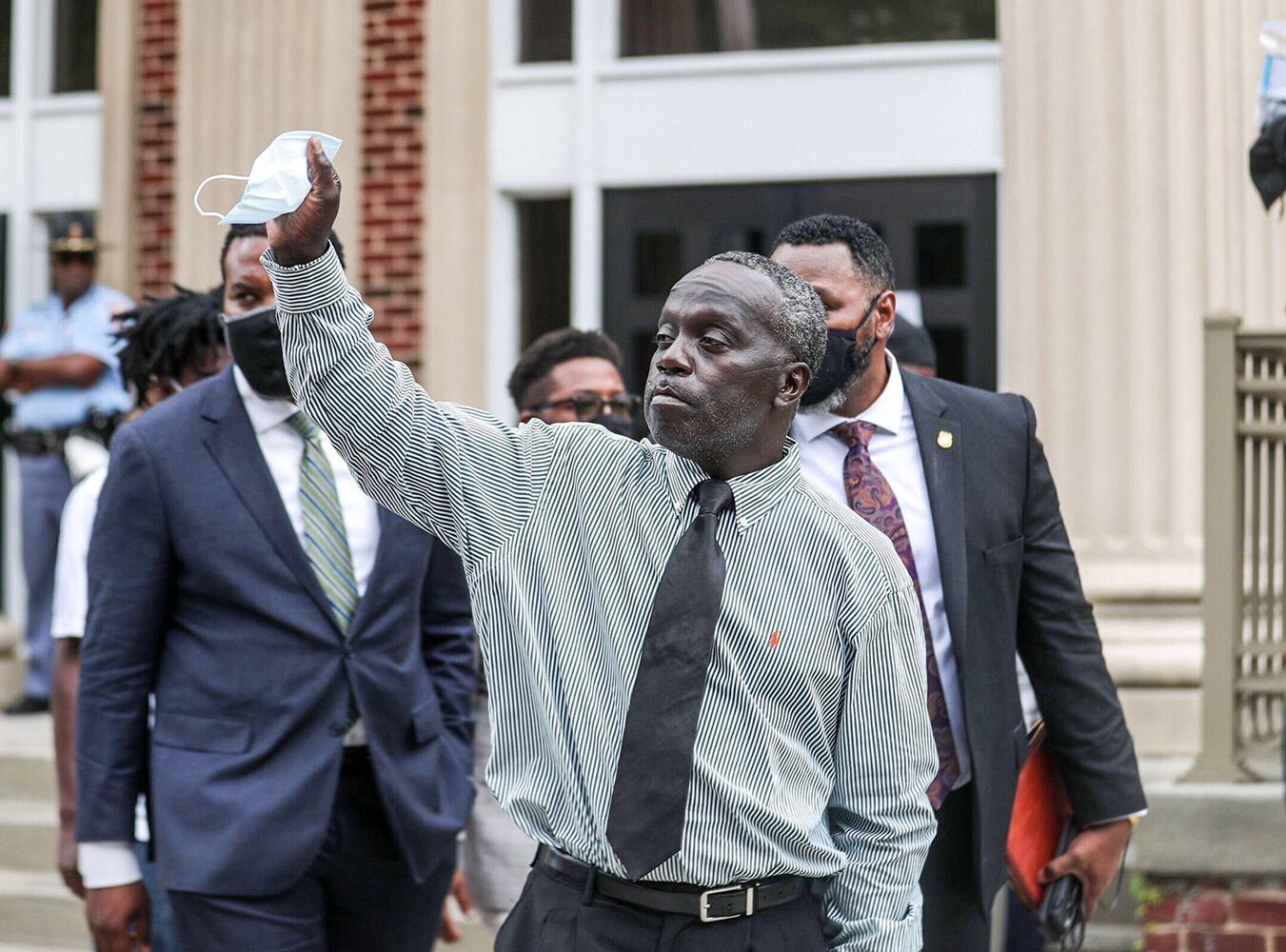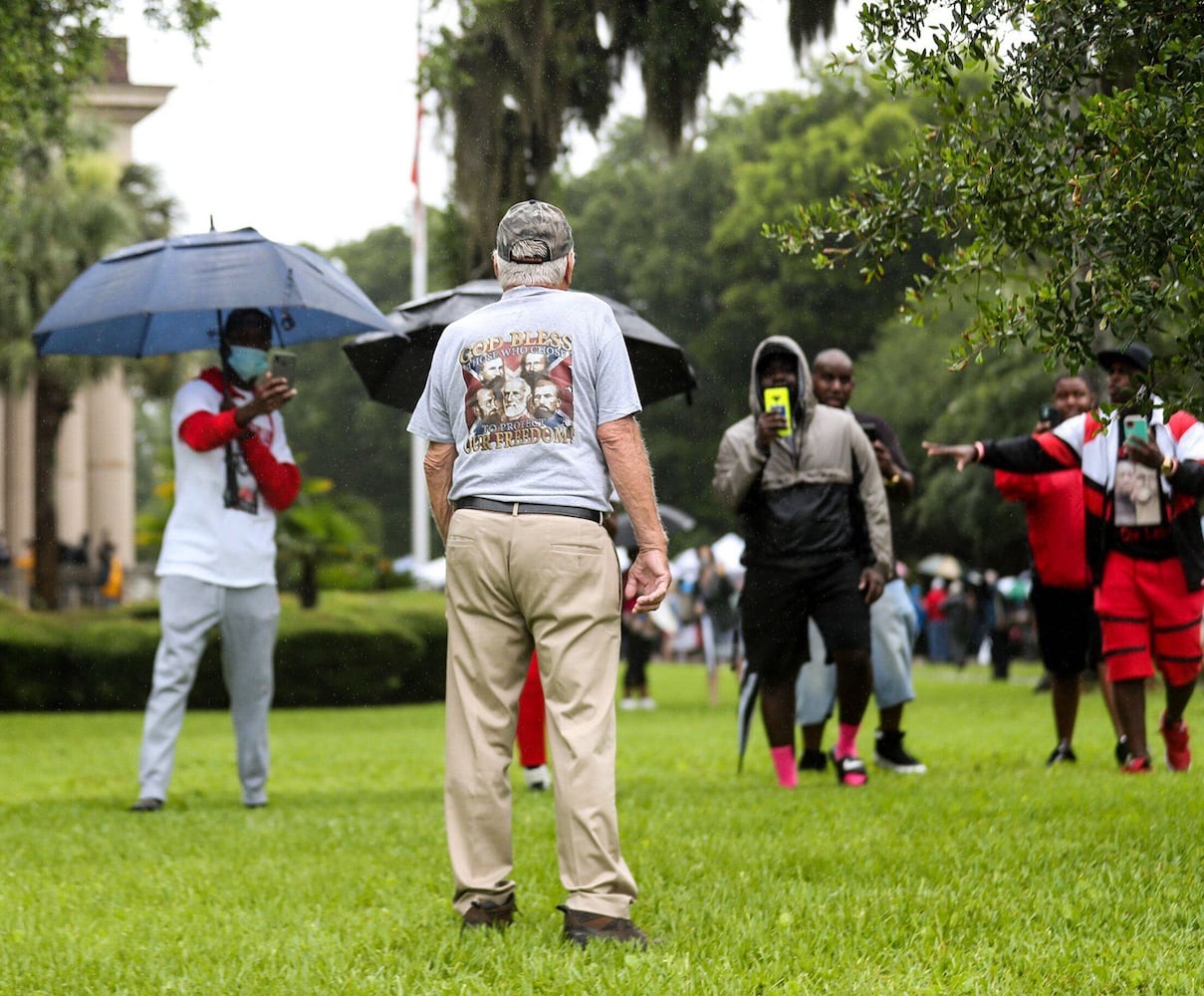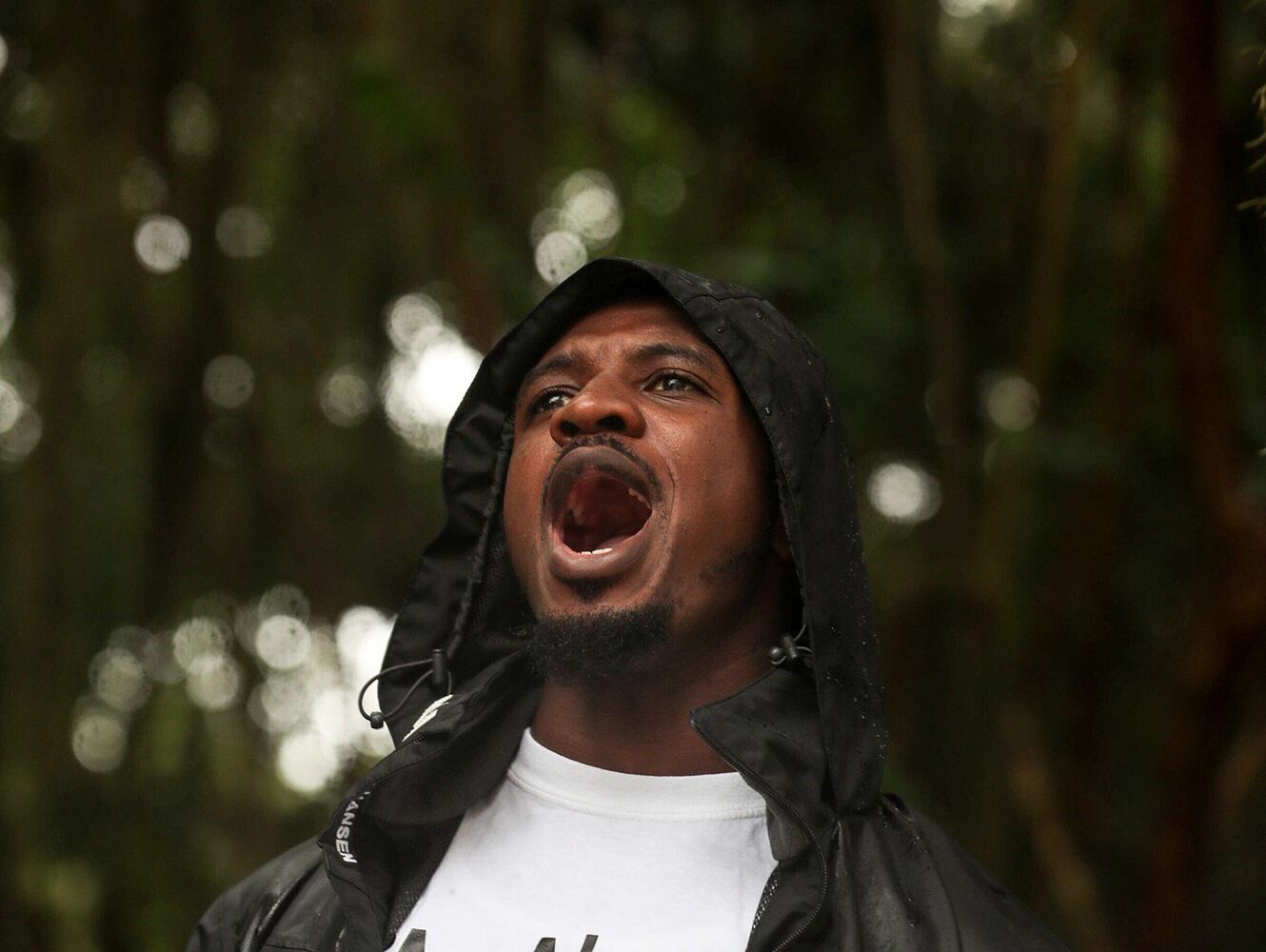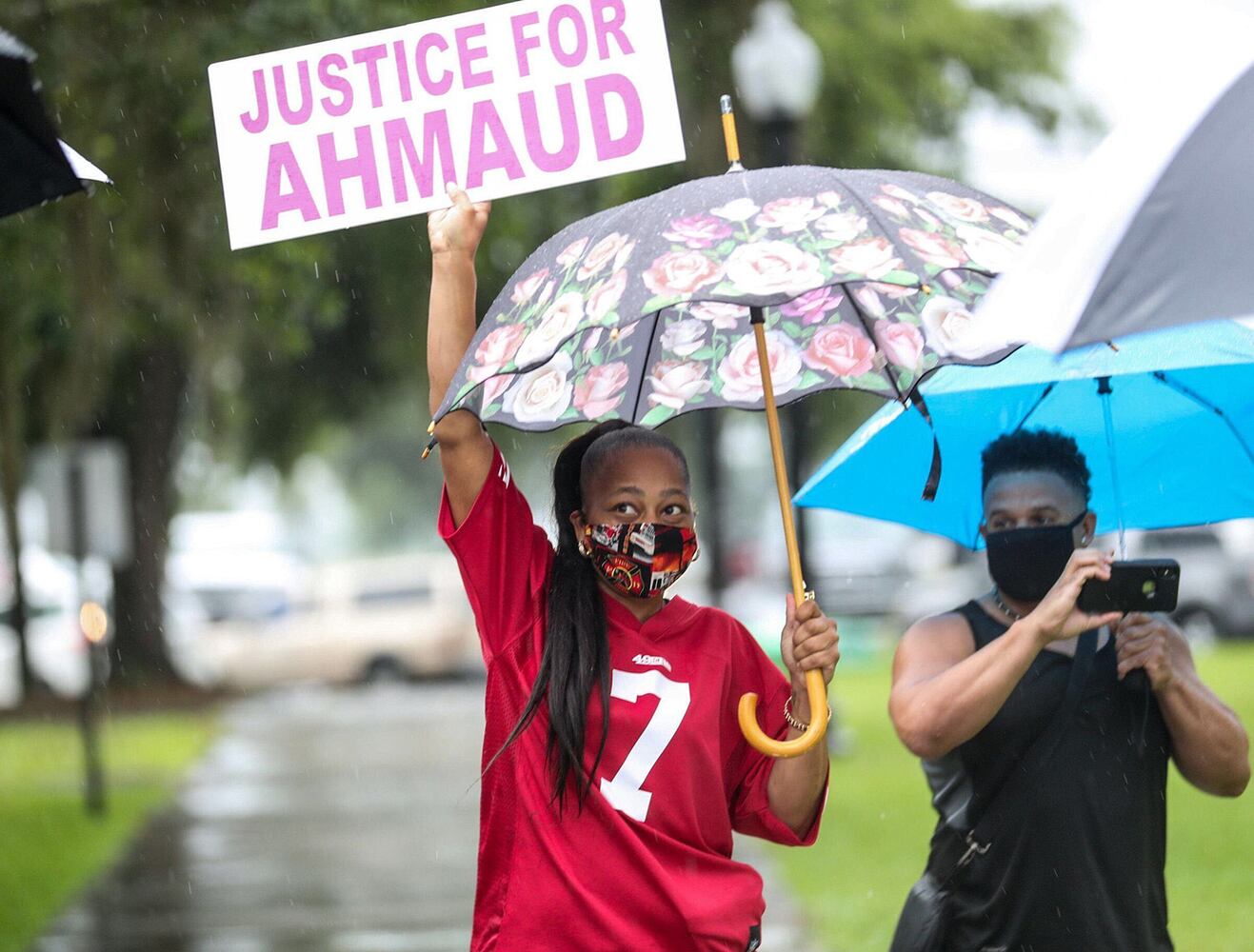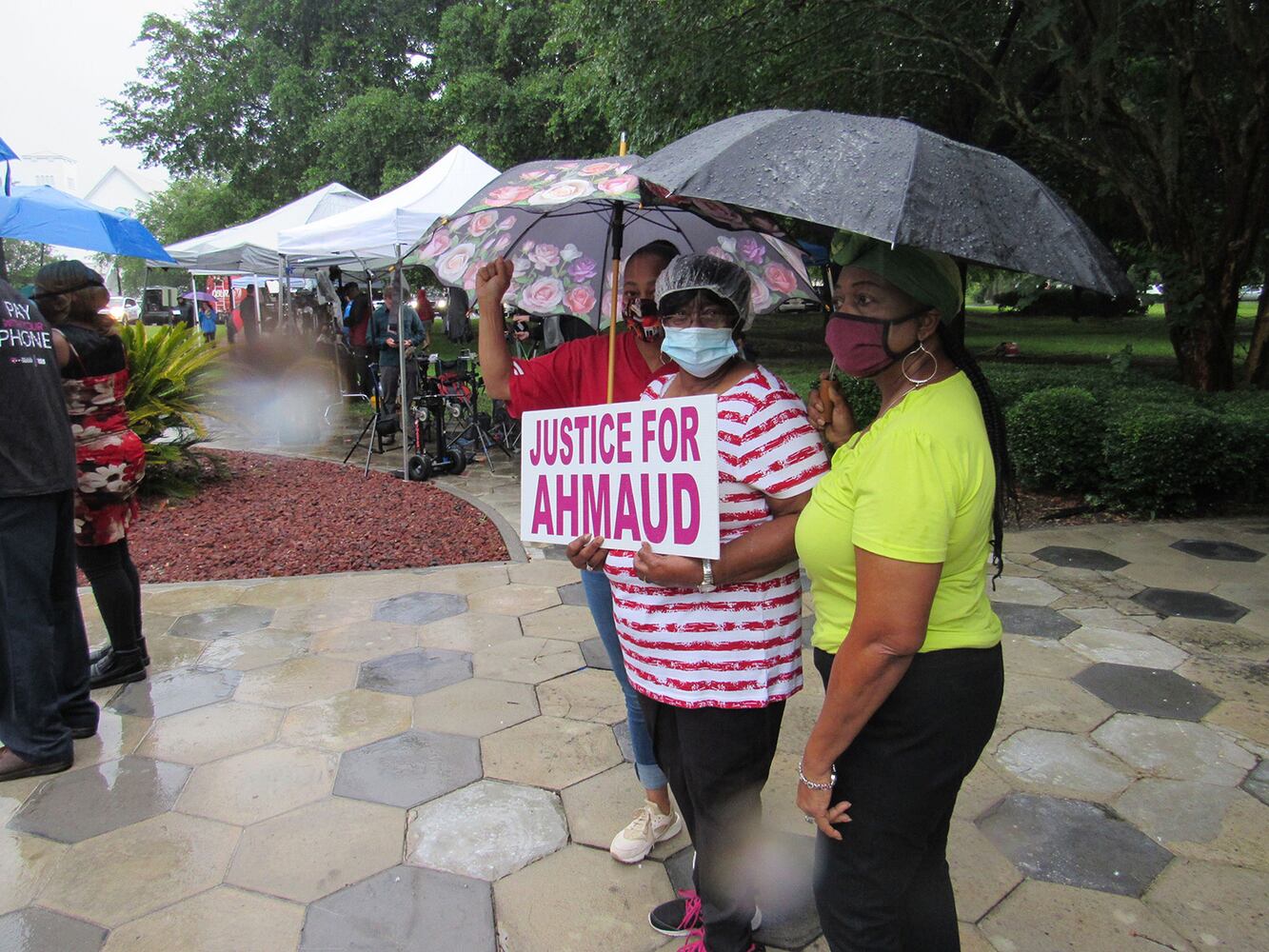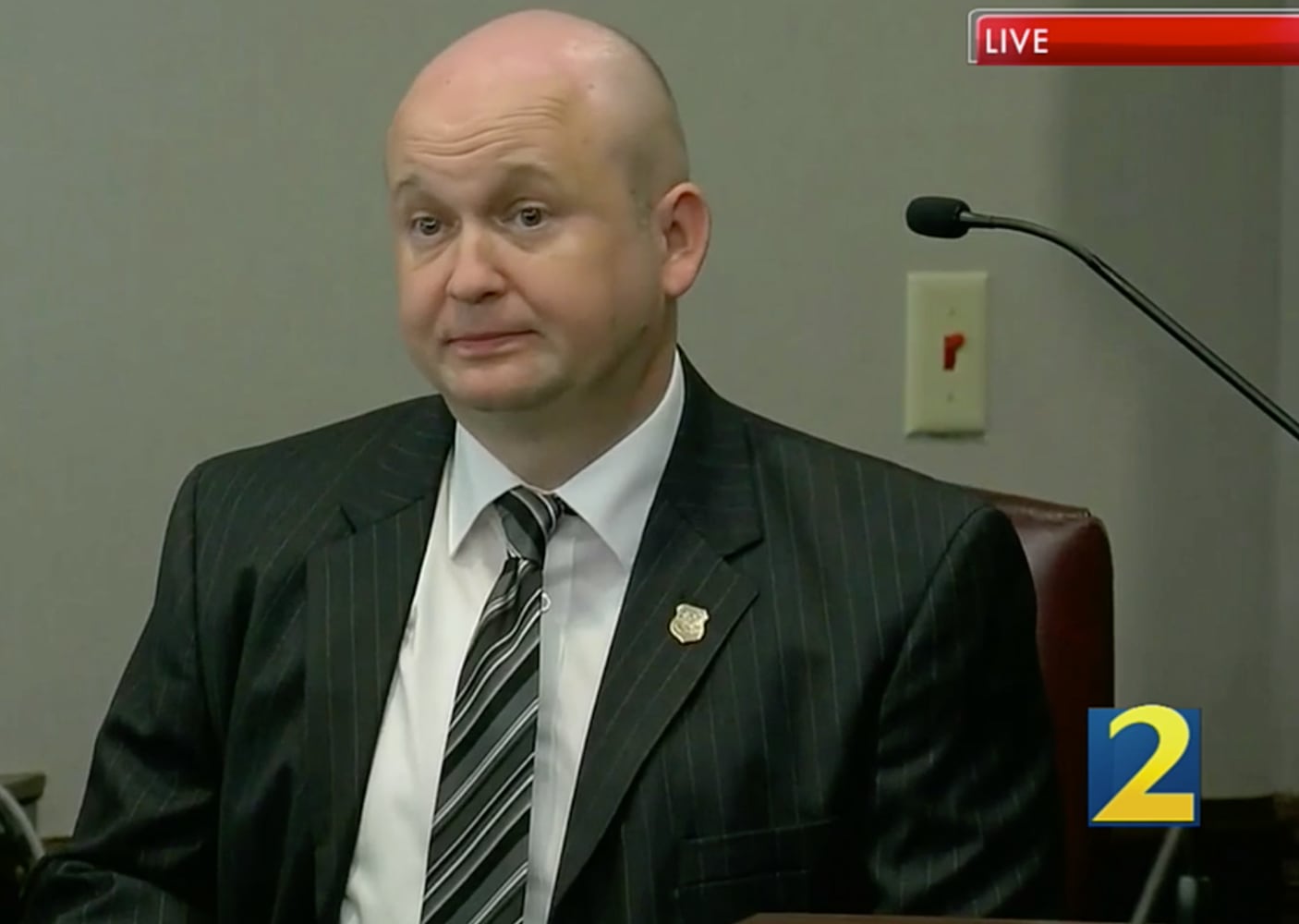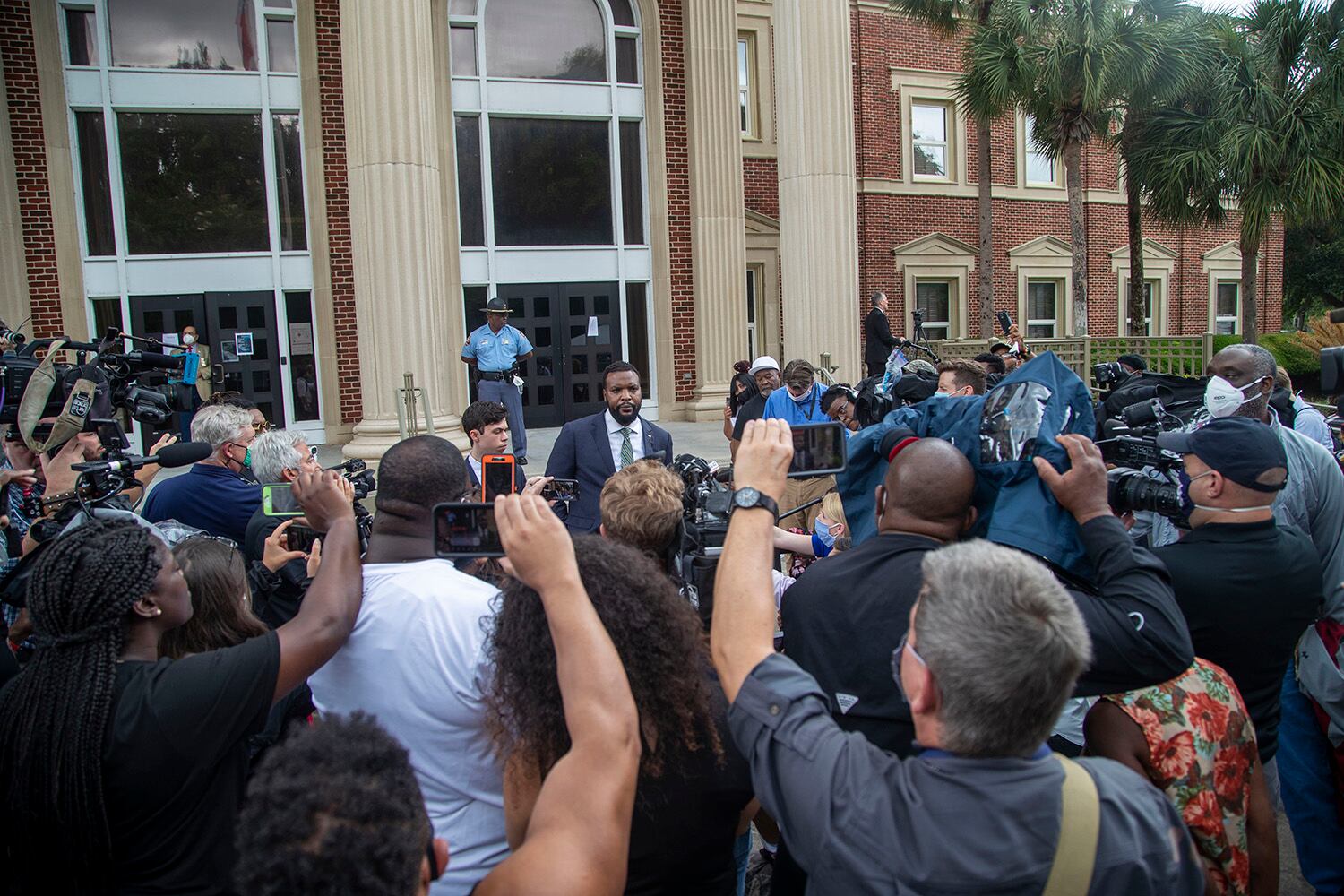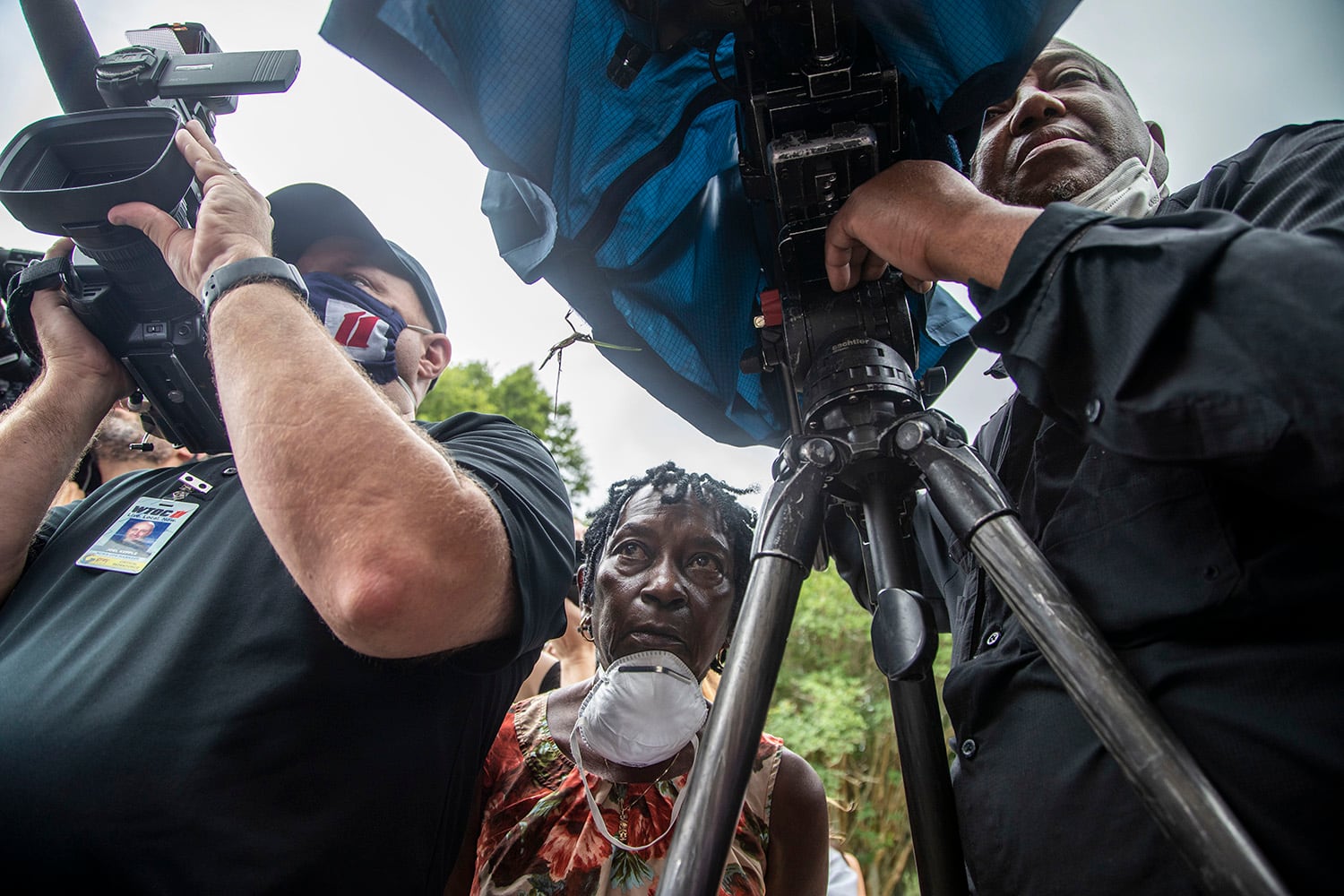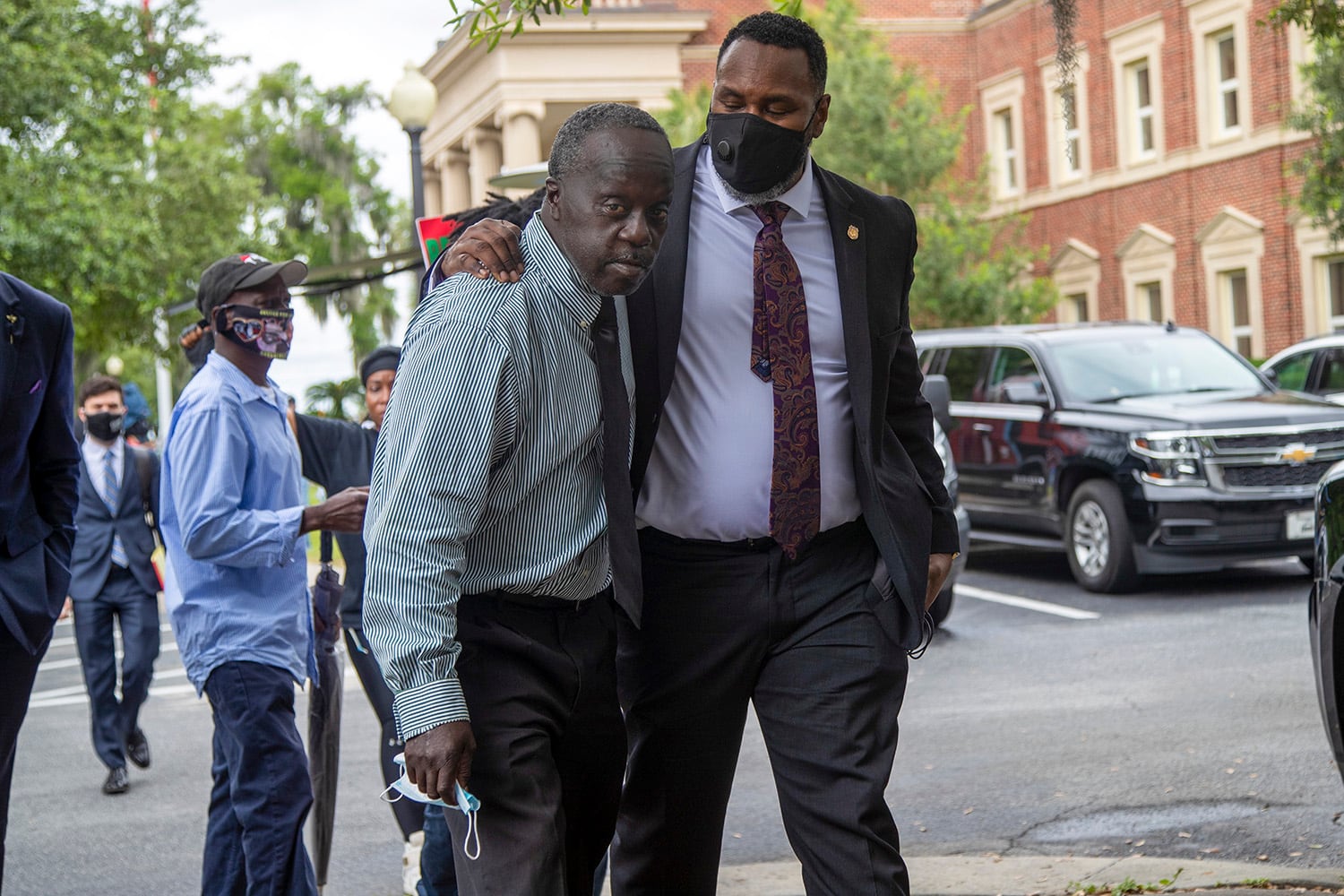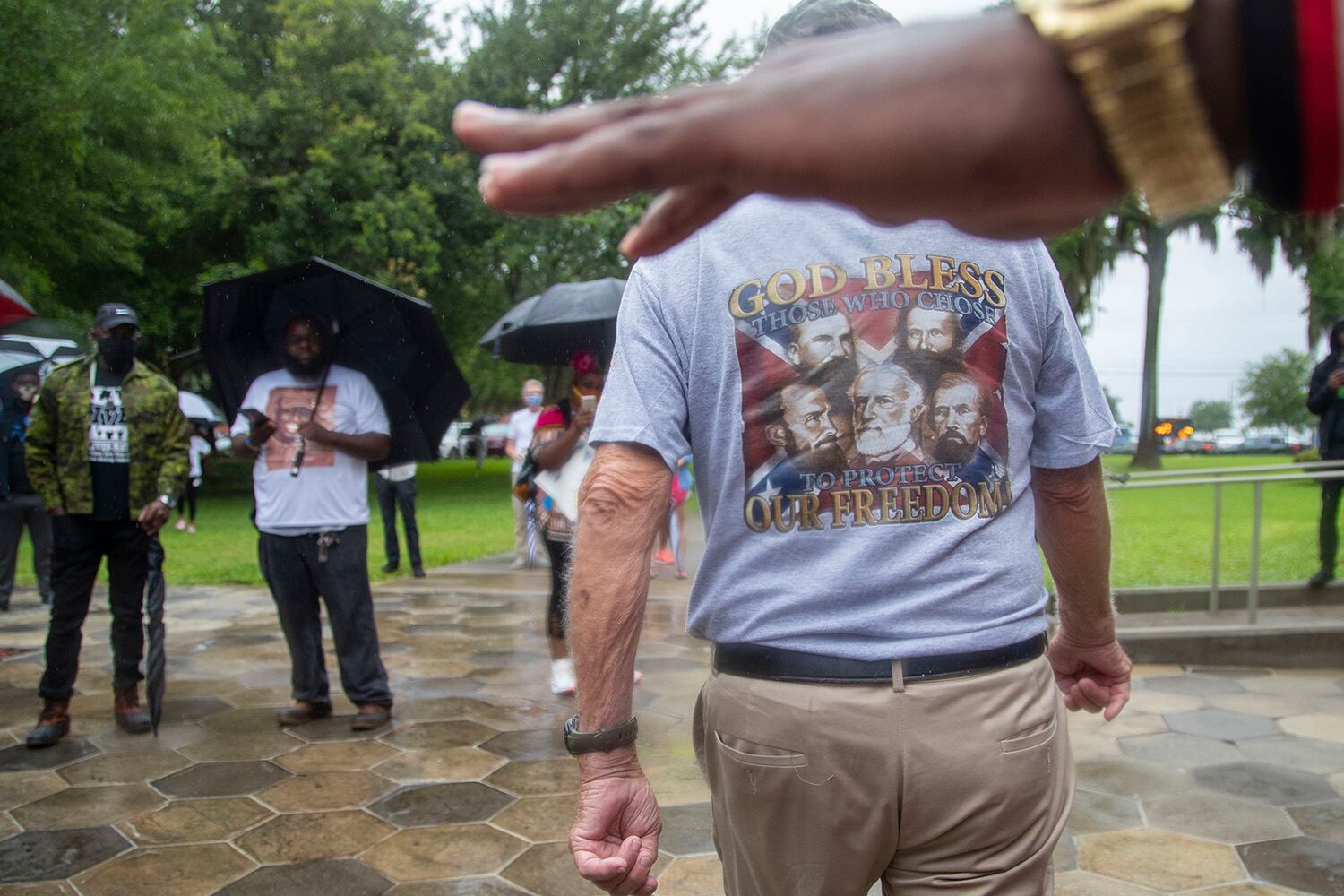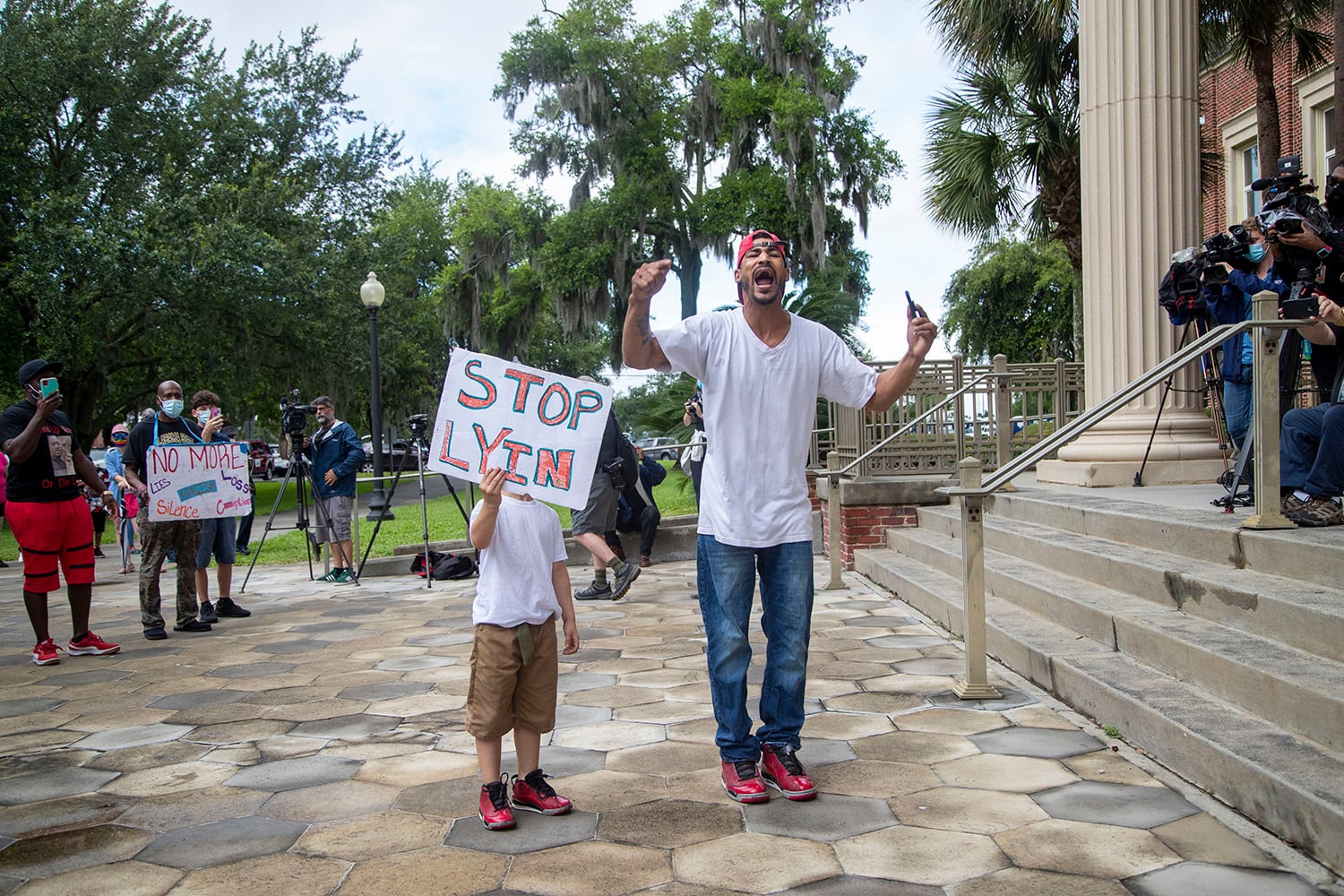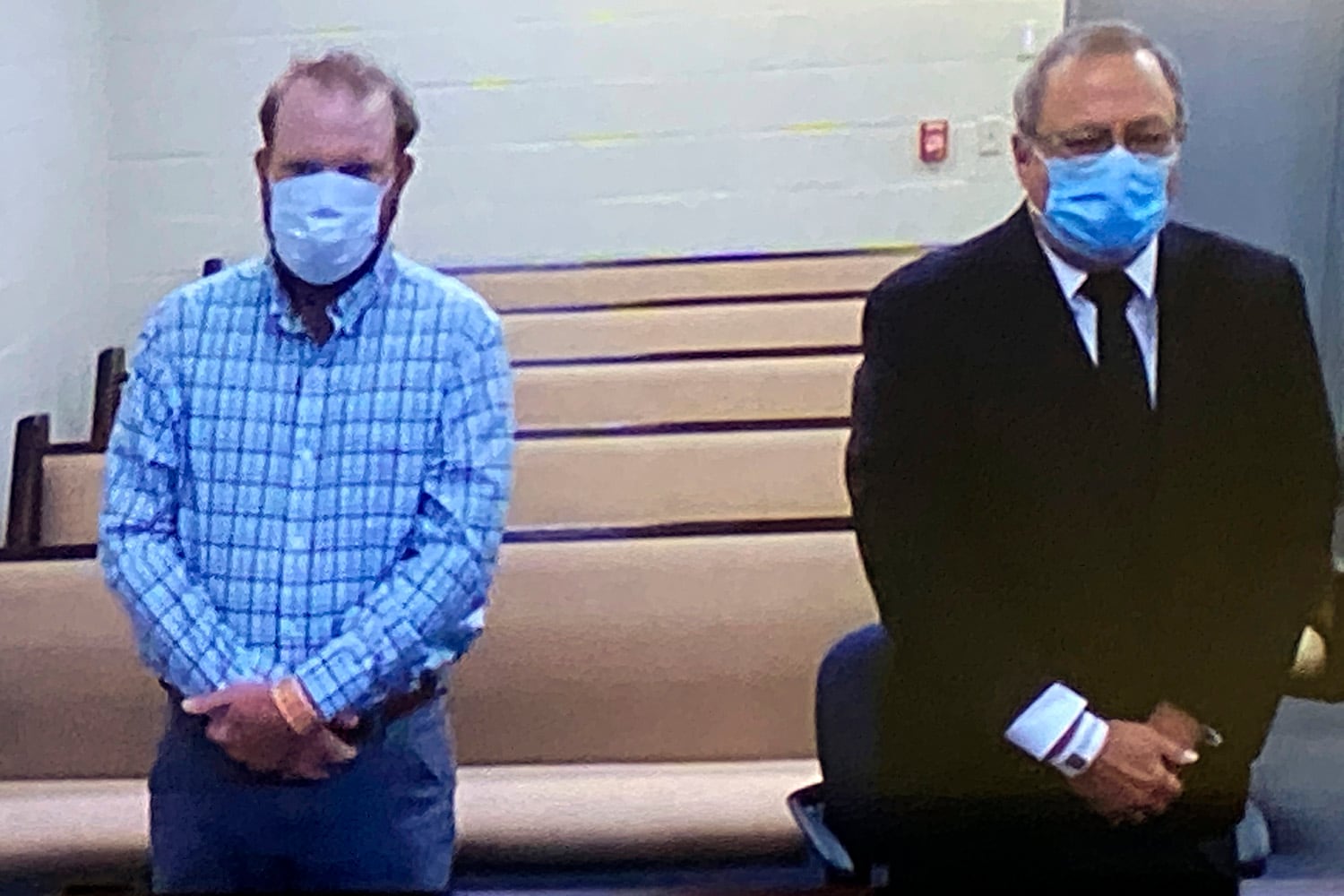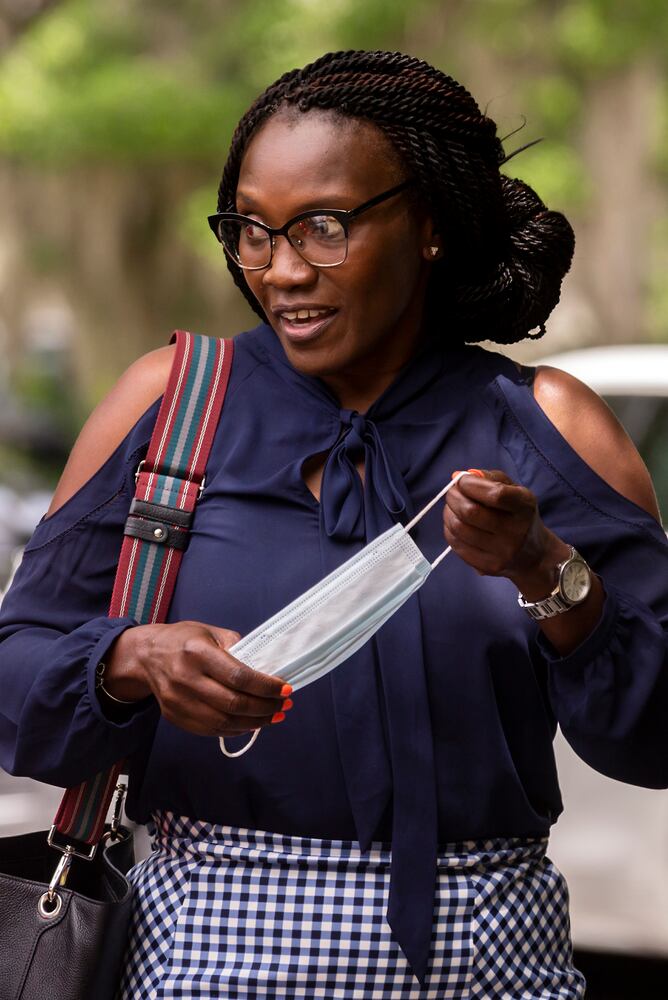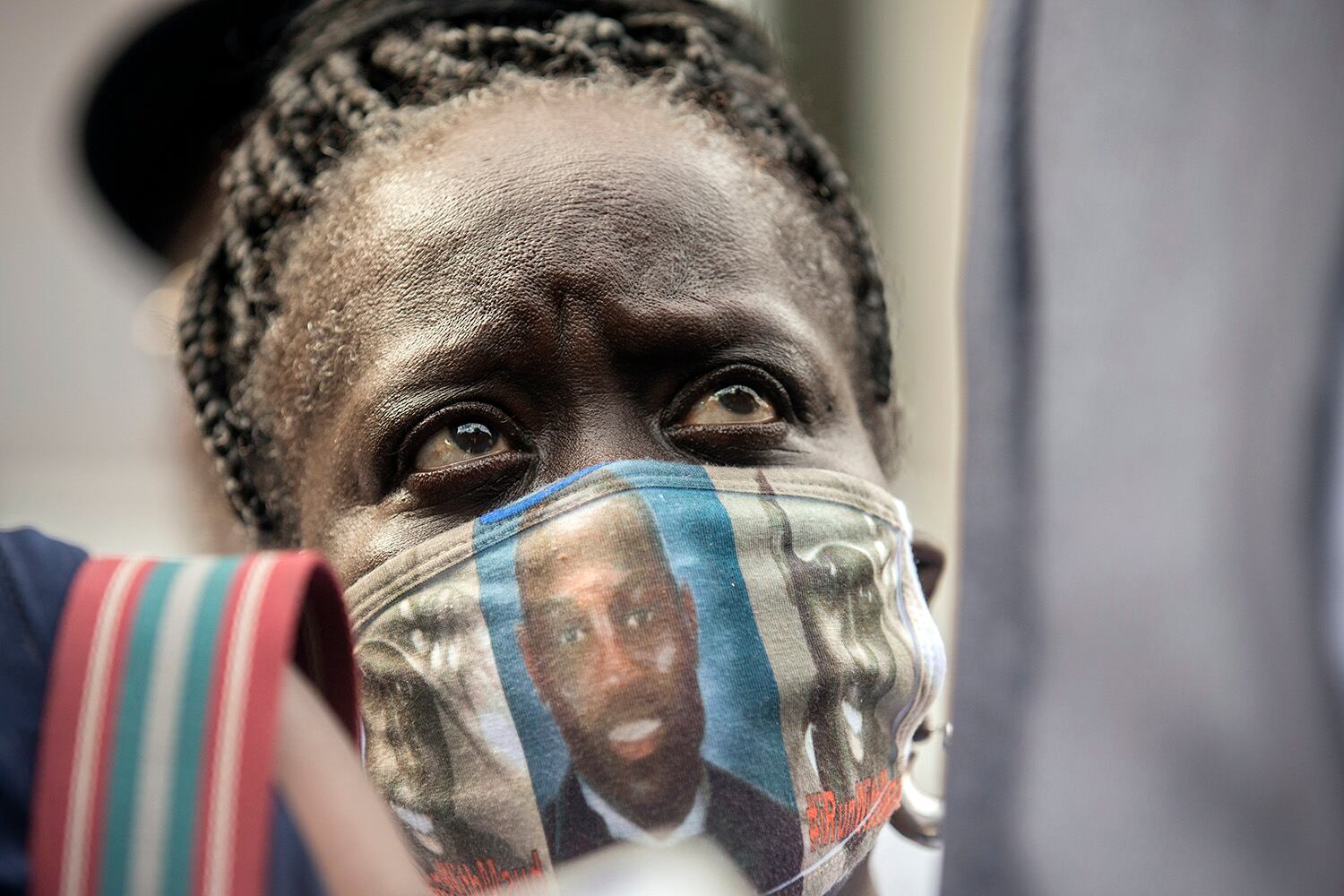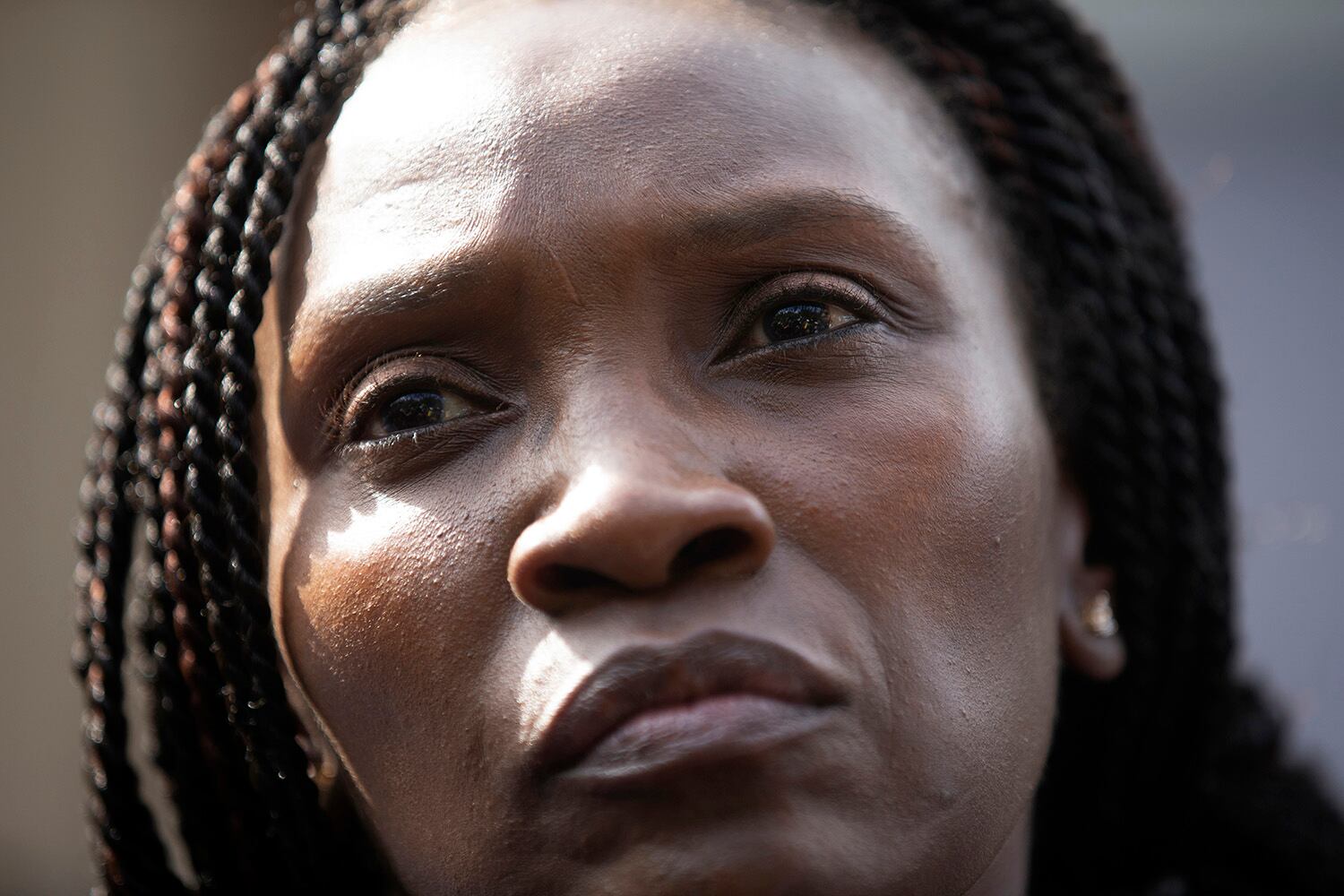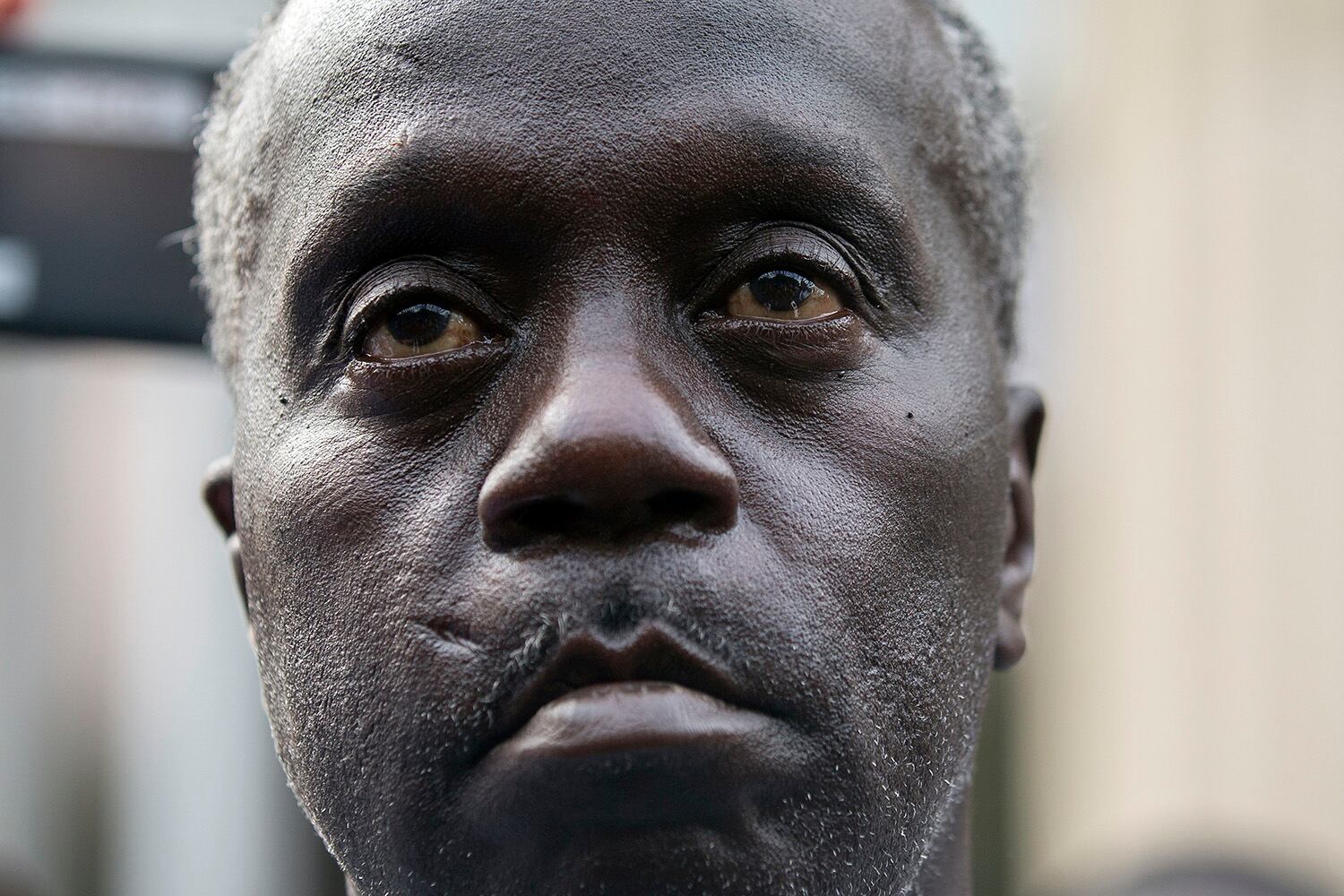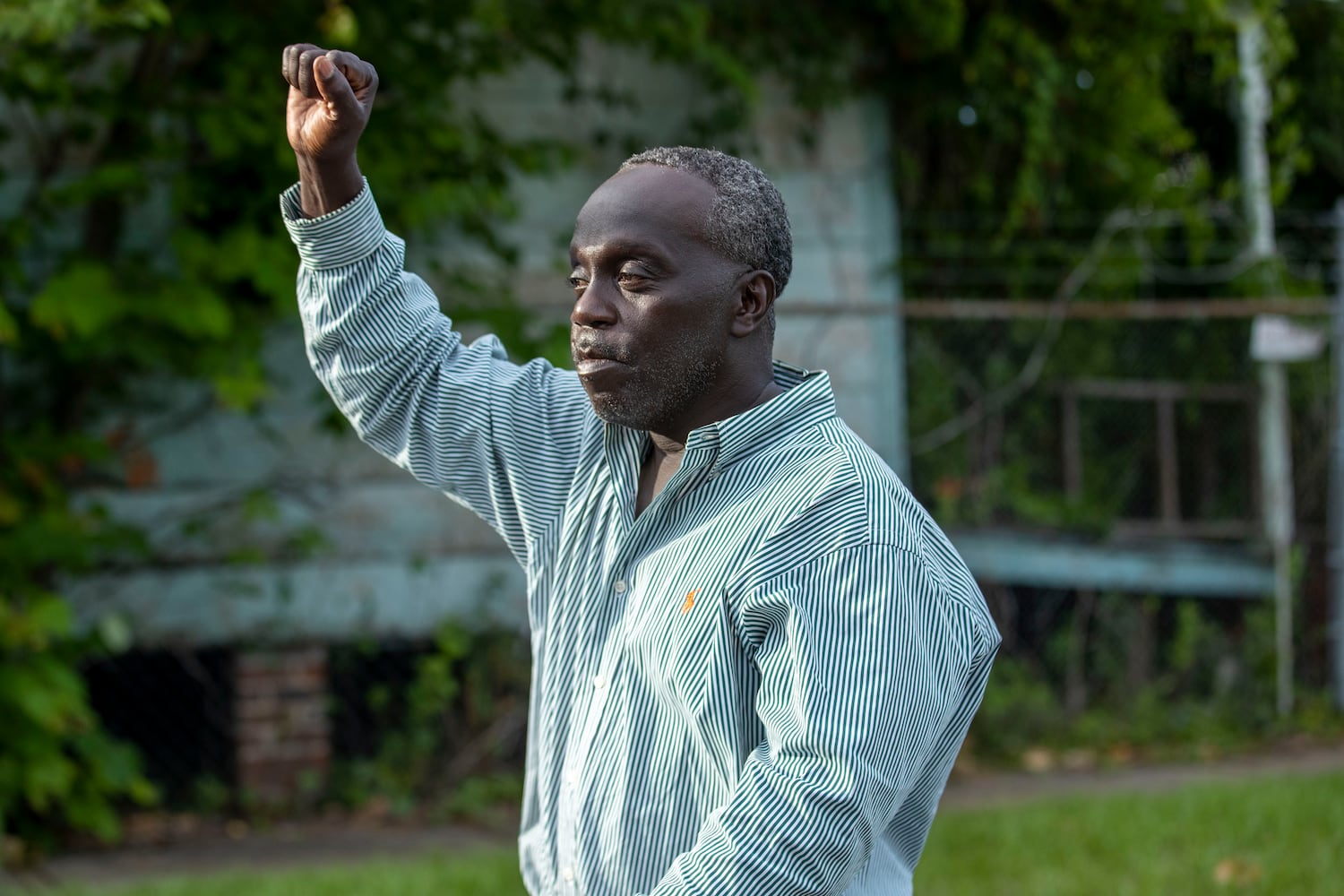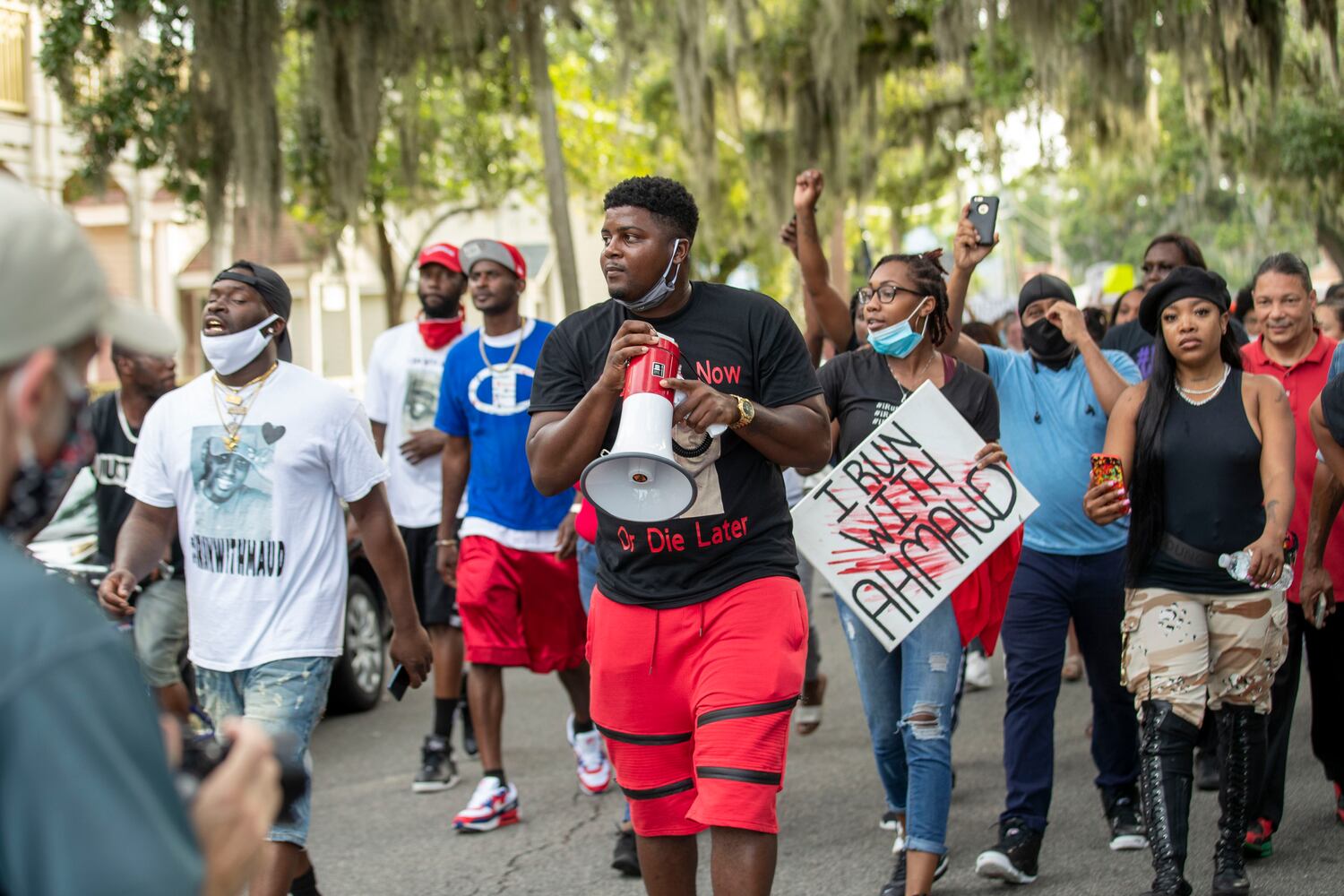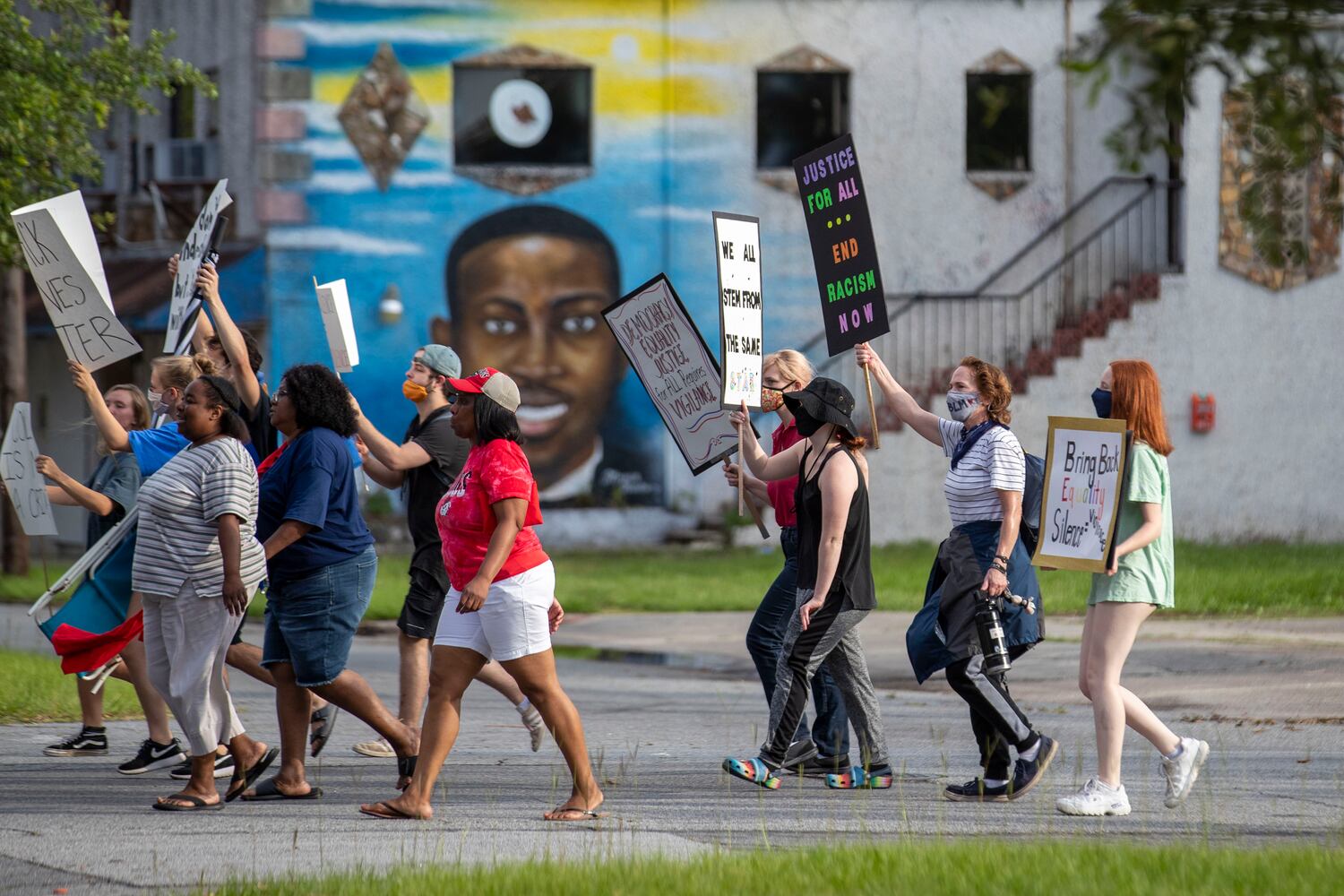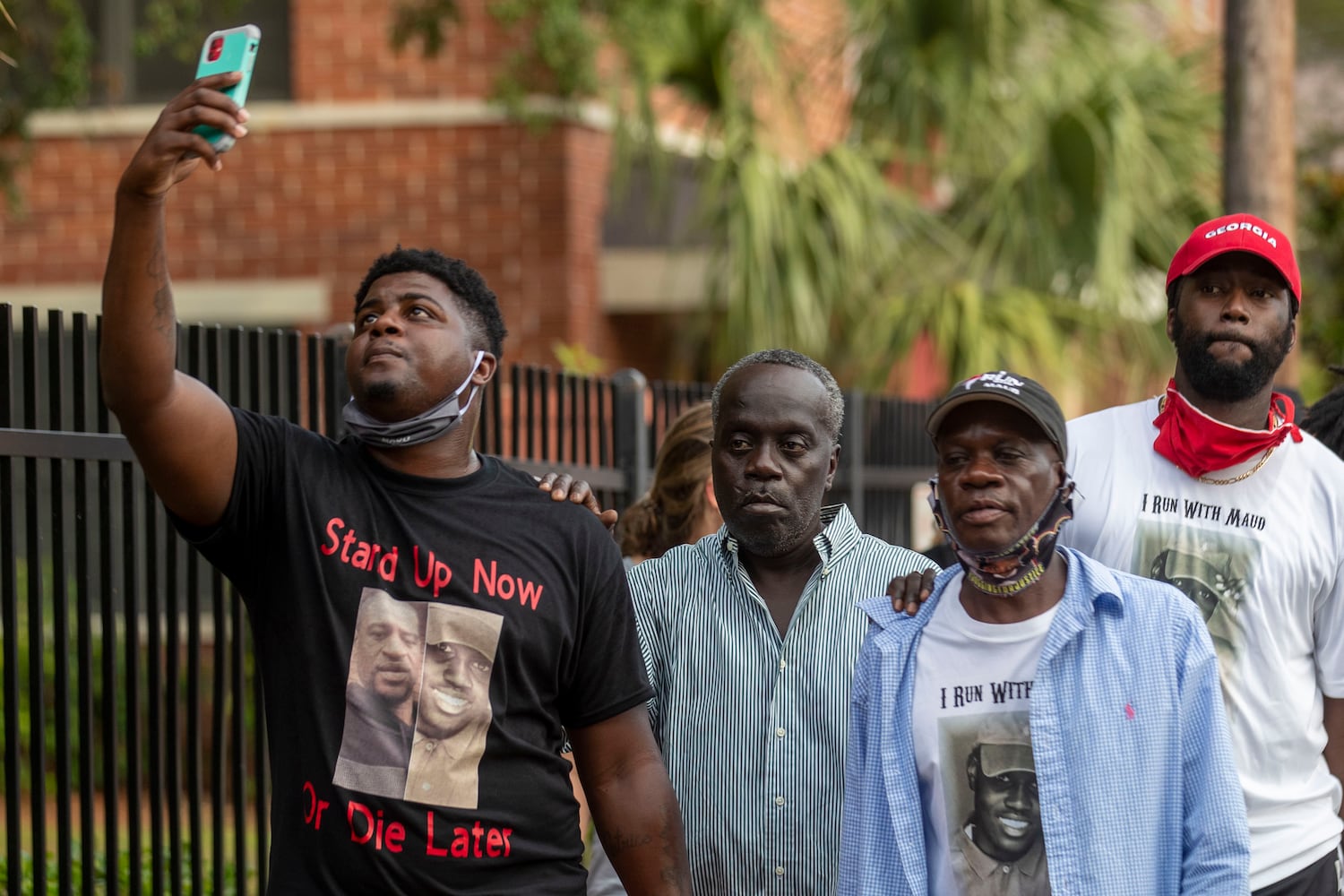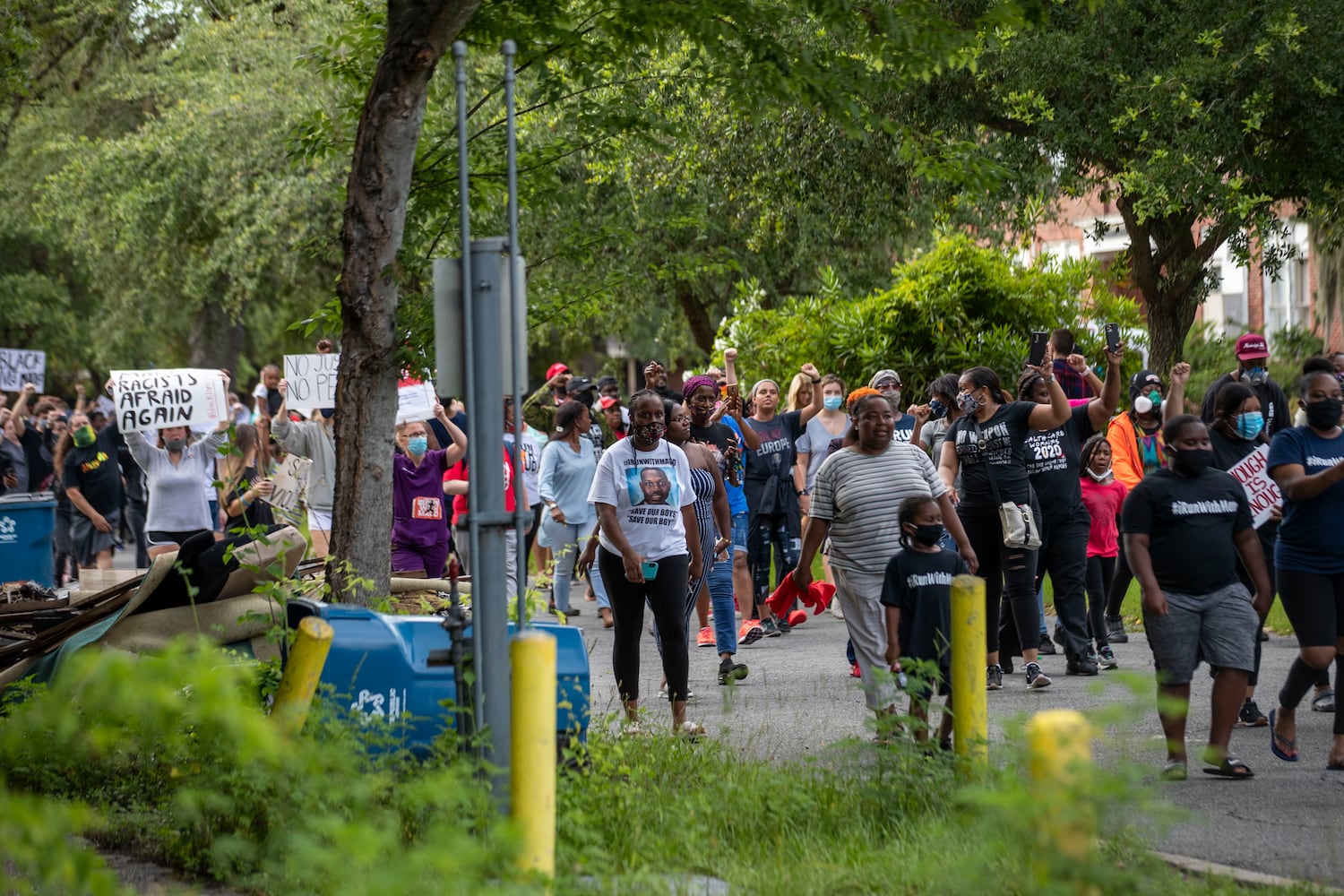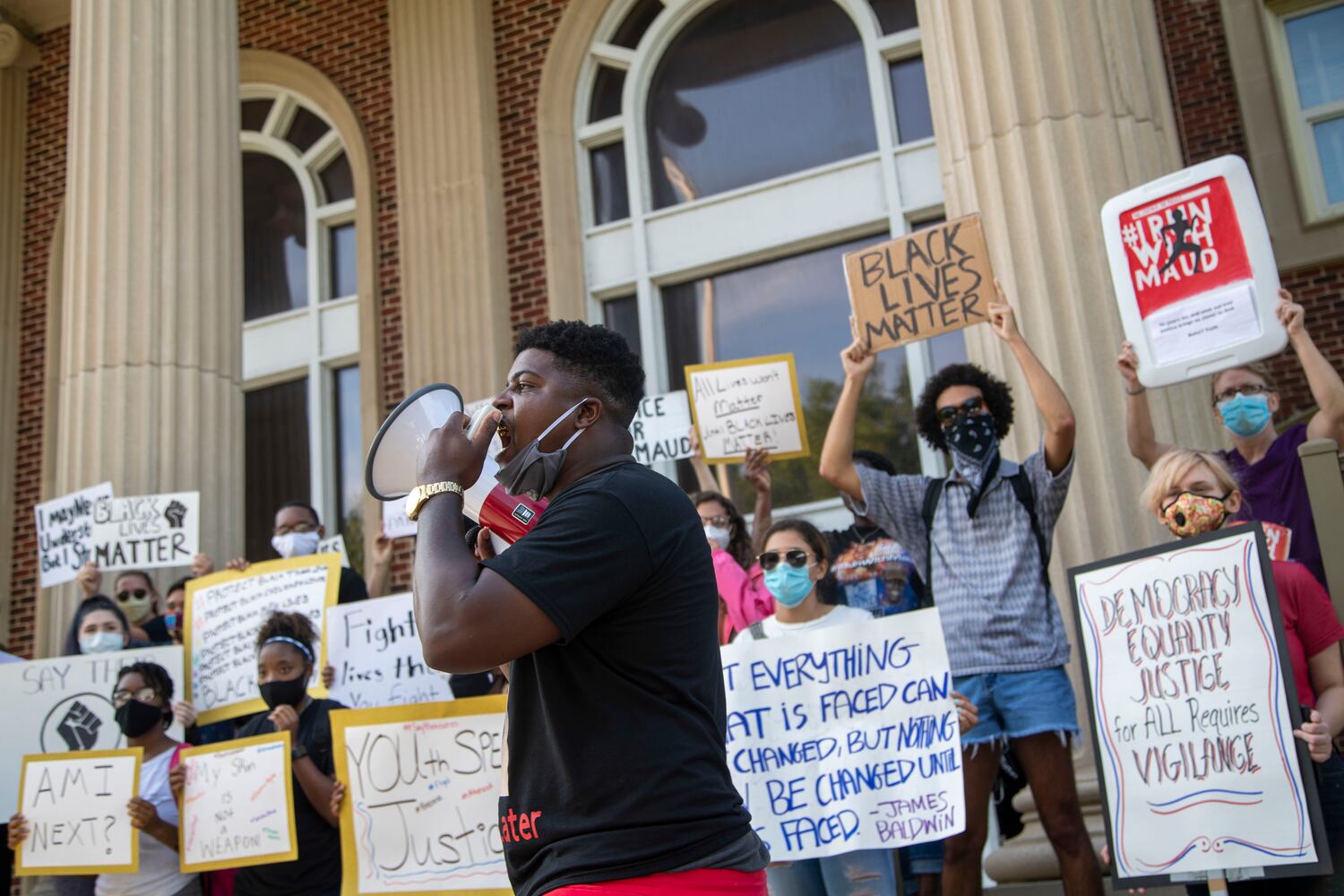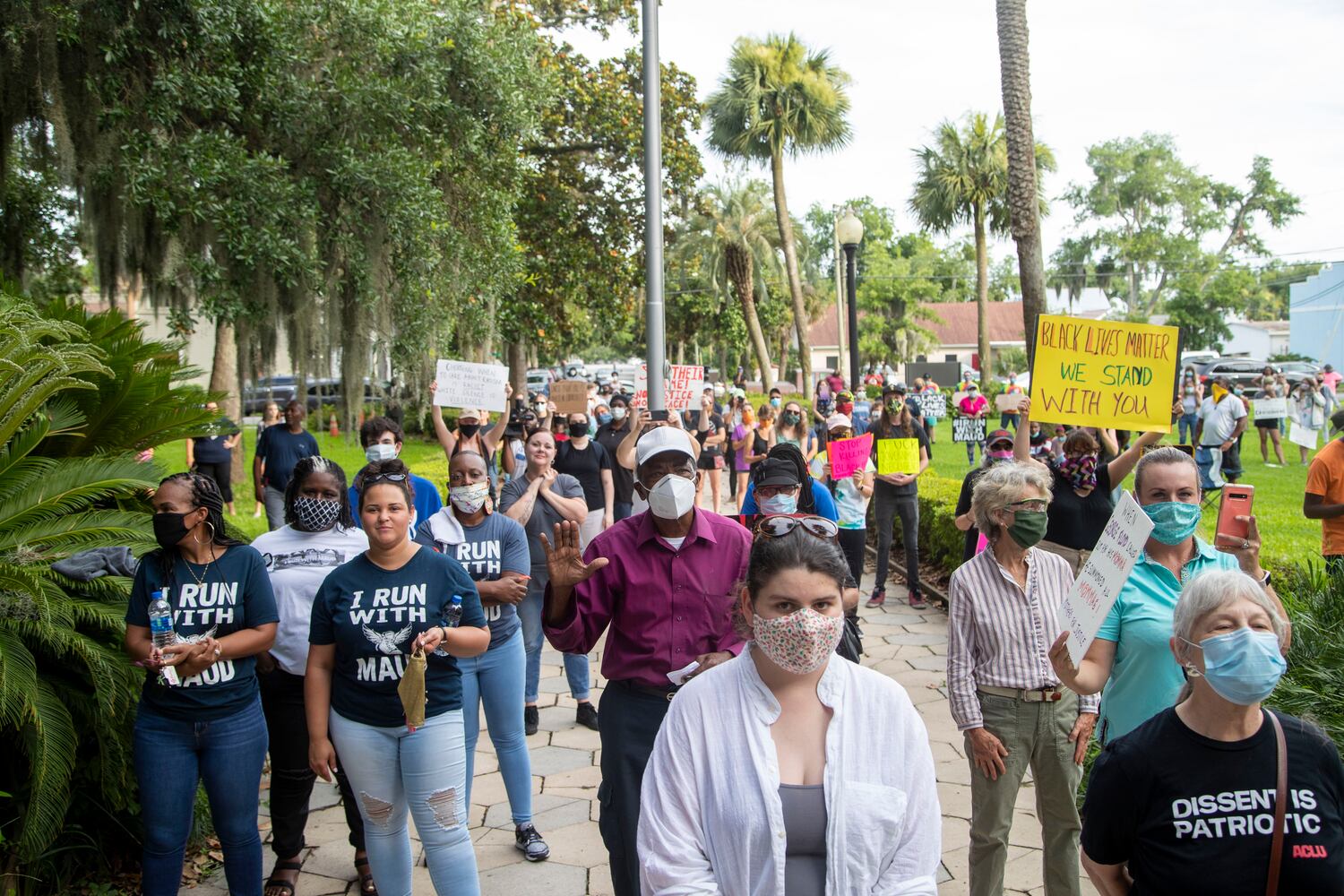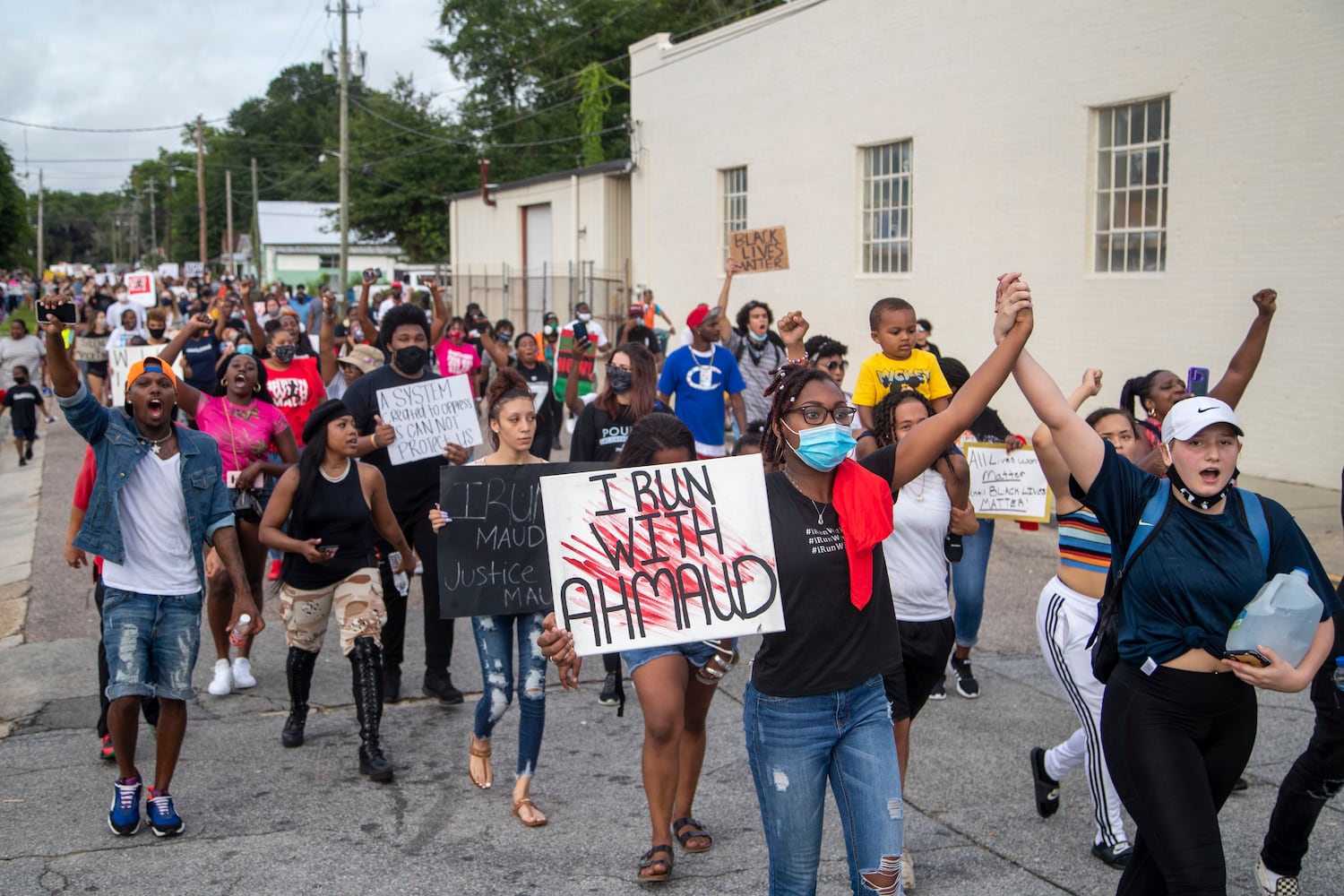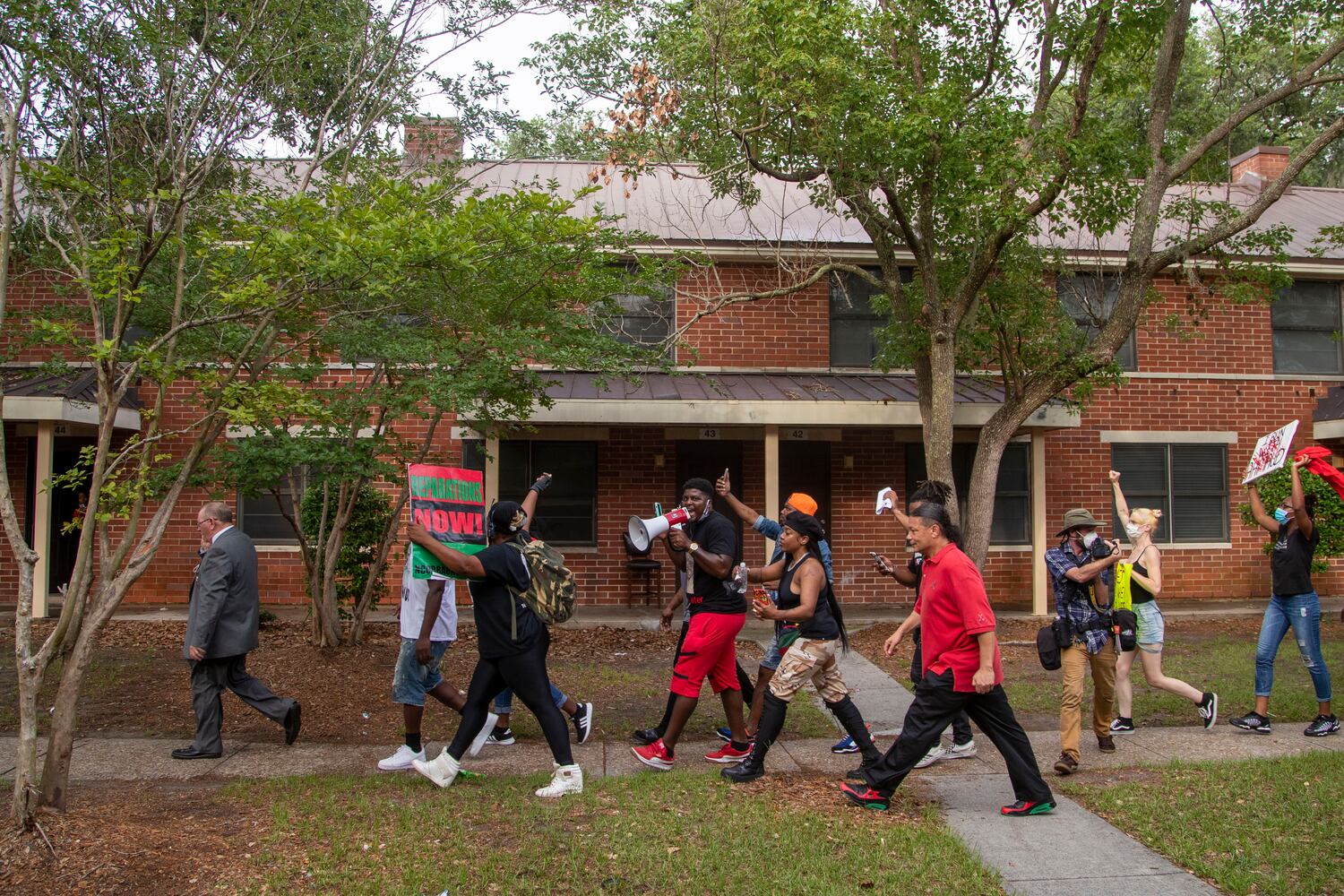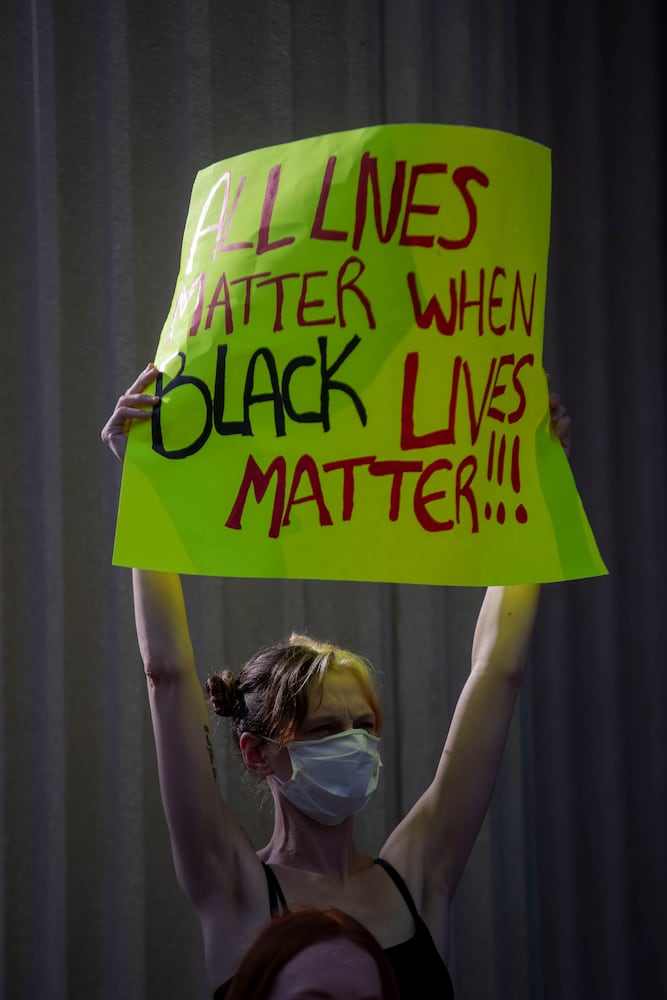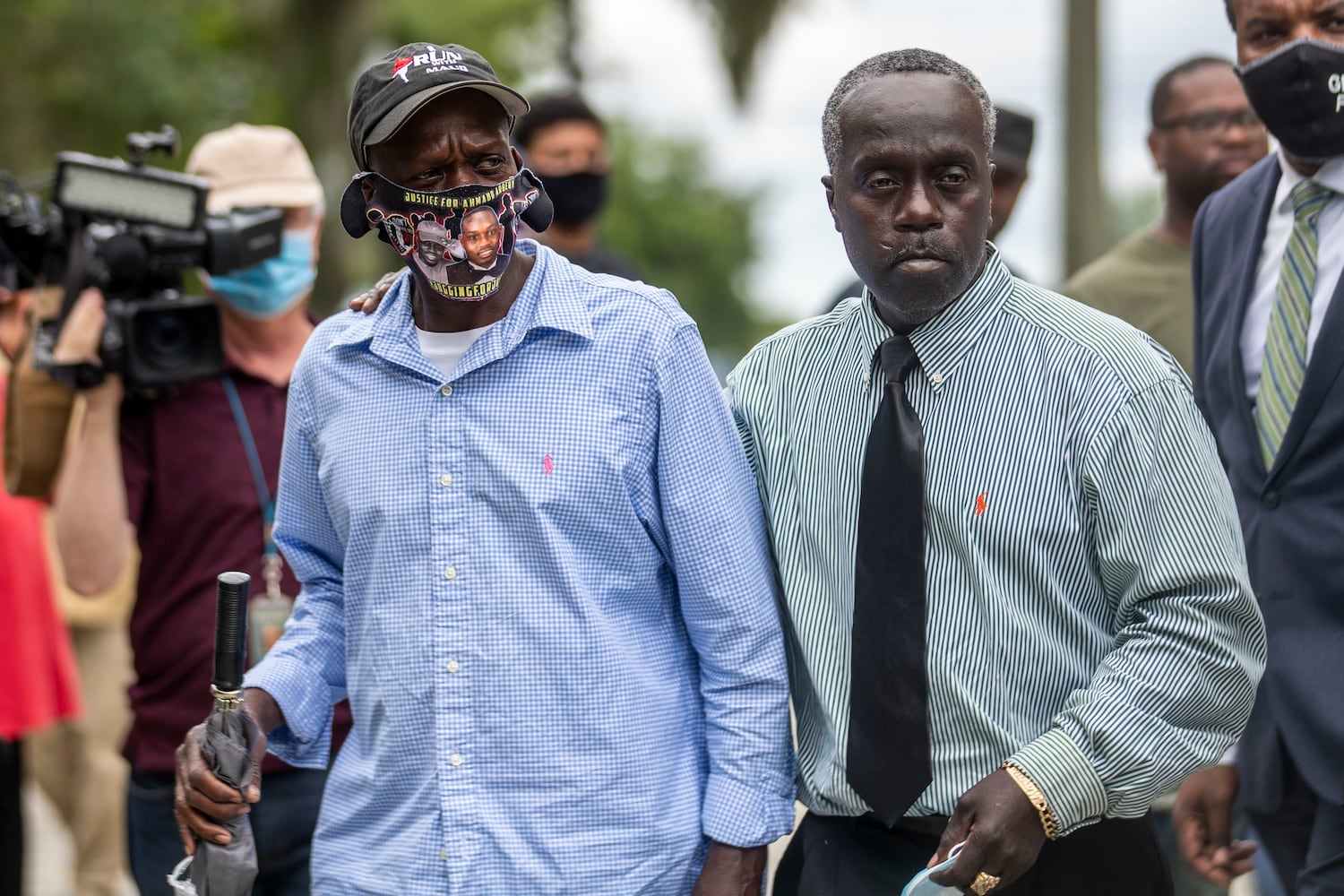This story references offensive language that is included because of its importance to the case.
Travis McMichael had just fired his 12-gauge shotgun three times. Two of the bullets hit the young black man in the chest. McMichael didn’t know his name.
With his father standing behind him, McMichael watched as Ahmaud Arbery took a few final steps and then collapsed, his white shirt soaked in blood.
On Thursday, the public learned how authorities say Travis McMichael responded as Arbery lay dying.
"F——ing n—-er!" he said, according to GBI Special Agent in Charge Richard Dial's sworn testimony regarding co-defendant William "Roddie" Bryan's account to authorities. Dial testified Thursday during a probable cause hearing for Travis McMichael, his father Greg McMichael and Bryan. The GBI last month announced the McMichaels' arrests on charges of felony murder and aggravated assault and Bryan's arrest on charges of felony murder and criminal attempt to commit false imprisonment. All three have been held since without bond.
COMPLETE COVERAGE: More on the Ahmaud Arbery case
Magistrate Court Judge Wallace Harrell ruled Thursday there was sufficient probable cause for the cases to be bound over to Superior Court. The hearing took place amid a national protest movement sparked by the Minneapolis death of George Floyd on May 25. Four police officers involved with the call that ended with Floyd’s death, since fired, now face charges.
Protests in Floyd’s memory, some turning violent and destructive, have rocked Atlanta in recent days. At some of the gatherings, supporters have shouted Arbery’s name along with Floyd’s.
“This case is revealing more and more not only that Ahmaud Arbery was murdered by men who had racial motivations but that those men were then protected by a system bent on devaluing the life of Ahmaud Arbery and justifying his murder without consideration for the safety of the community, without consideration of the facts in evidence,” attorney Lee Merritt, who represents Arbery’s mother, said after Thursday’s proceedings in Brunswick. “It points to the fact that if and when these men are convicted, we have a greater issue in this country: dismantling the white supremacy that exists within our court system.”
And it wasn’t just McMichael’s epithet, Merritt said. There was Bryan’s claim that he was nearly a victim of a carjacking by Arbery even though Bryan and the McMichaels, were the ones pursuing Arbery, he said. Or Travis McMichael’s statement to police that he was fearful of being attacked by Arbery, he said. Travis and Greg McMichael were armed; Arbery was not.
Arbery, 25, died on Feb. 23.
Jason Sheffield, co-counsel for Travis McMichael, said his client had reason to be concerned for his safety the day of the fatal encounter.
“I don’t believe it was self-defense by Mr. McMichael,” said Dial, under cross examination. “I believe it was self- defense by Mr. Arbery.”
Dial acknowledged that Arbery chose to fight when confronted by Travis McMichael. By then, after a chase that lasted estimated seven minutes, Arbery was out of options, he said.
“I believe Mr. Arbery was being pursued and he ran until he couldn’t run anymore,” Dial testified. “And it was turning back to a man with a shotgun or fight with his bare hands the man with the shotgun. When he felt like he could not escape, he chose to fight.”
Arbery’s mother, Wanda Cooper Jones, said much of the testimony was difficult to absorb.
“He was afraid,” she said. “Life had placed him in a position where I couldn’t protect him, and he wasn’t able to protect himself.”
The McMichaels watched via video stream from a courtroom at the Glynn County jail, where they’ve been held since May 7. Coronavirus concerns prevented them from appearing at the hearing. Most everyone in the courtroom, including the judge, wore masks. Witnesses took them off while testifying.
Dial testified he found numerous examples of Travis McMichael’s racism on social media. Earlier this year, before the shooting, McMichael commented on an Instagram post shared with him by a friend.
“That’d only be better if they’d blown that n—-er’s head off,” McMichael wrote.
Those comments will likely reverberate beyond the state’s case. The U.S. Department of Justice said last month it is reviewing the evidence to determine whether federal hate crime charges may apply. Georgia is one of a few states without a hate crime law.
“If there were any doubt before this hearing— it is now clear the murder of Ahmaud Arbery occurred almost entirely due to racial bias, actual animus and deep seeded hatred of blackness,” Merritt said in a social media post.
MORE: 'Breakdown' special episode: The Ahmaud Arbery case begins
Sheffield said the McMichaels were acting on behalf of their Satilla Shores community, which had decided, on its Facebook page, that a man matching Arbery’s description needed to be held accountable for supposed burglaries in the neighborhood.
Those burglaries never happened, or at least were never reported, Dial testified. Greg McMichael pursued Arbery based on a gut feeling, he said.
Dial was asked by Sheffield why it was unreasonable to think the McMichaels were simply trying to make a citizen’s arrest.
“I was concerned whether their actions were legal and if they had the authority to do it, not so much what their intention was,” Dial said. “Their actions being trying to stop a person that they believed had been burglarizing their neighborhood. Trying to stop a person, pointing a shotgun, ordering the person to get on the ground and subsequently killing that person.”
Lead prosecutor Jesse Evans said Arbery was “chased, hunted down and ultimately executed at the hands of these men.”
“He was on a run on a public road in a public subdivision,” Evans said. “He was defenseless and unarmed.”
Glynn County Jackie Johnson recused herself, as Greg McMichael, now retired, once worked as investigator in her office. Waycross District Attorney George Barnhill agreed to take the case on but recused himself at the request of Arbery’s family, as his son works in the Glynn County DA’s office. Hinesville area District Attorney Tom Durden briefly inherited the case but concluded his small office lacked the resources to see it through. Newly appointed Cobb County District Attorney Joyette Holmes has now taken it on.
Protesters showed up with umbrellas in the Thursday morning rain and maintained a consistent, peaceful presence outside the courthouse throughout the day.
Kobe Mukes, a local high school student, implored the crowd to move beyond gestures.
Mukes said even at his young age has has become tired of fighting racism.
“This is a struggle we fight every day,” Mukes said through a megaphone from the front stairs of the courthouse. “Empathy, empathy, that ‘s the key word here.”
He encouraged people to become more involved in defeating racism.
“We do not need people who aren’t racists - we need people who are anti-racists,” Mukes said. “Speak up — it’s the least you can do. Denounce racists.”
Note to readers: This story references offensive language that is included because of its importance to the case.
